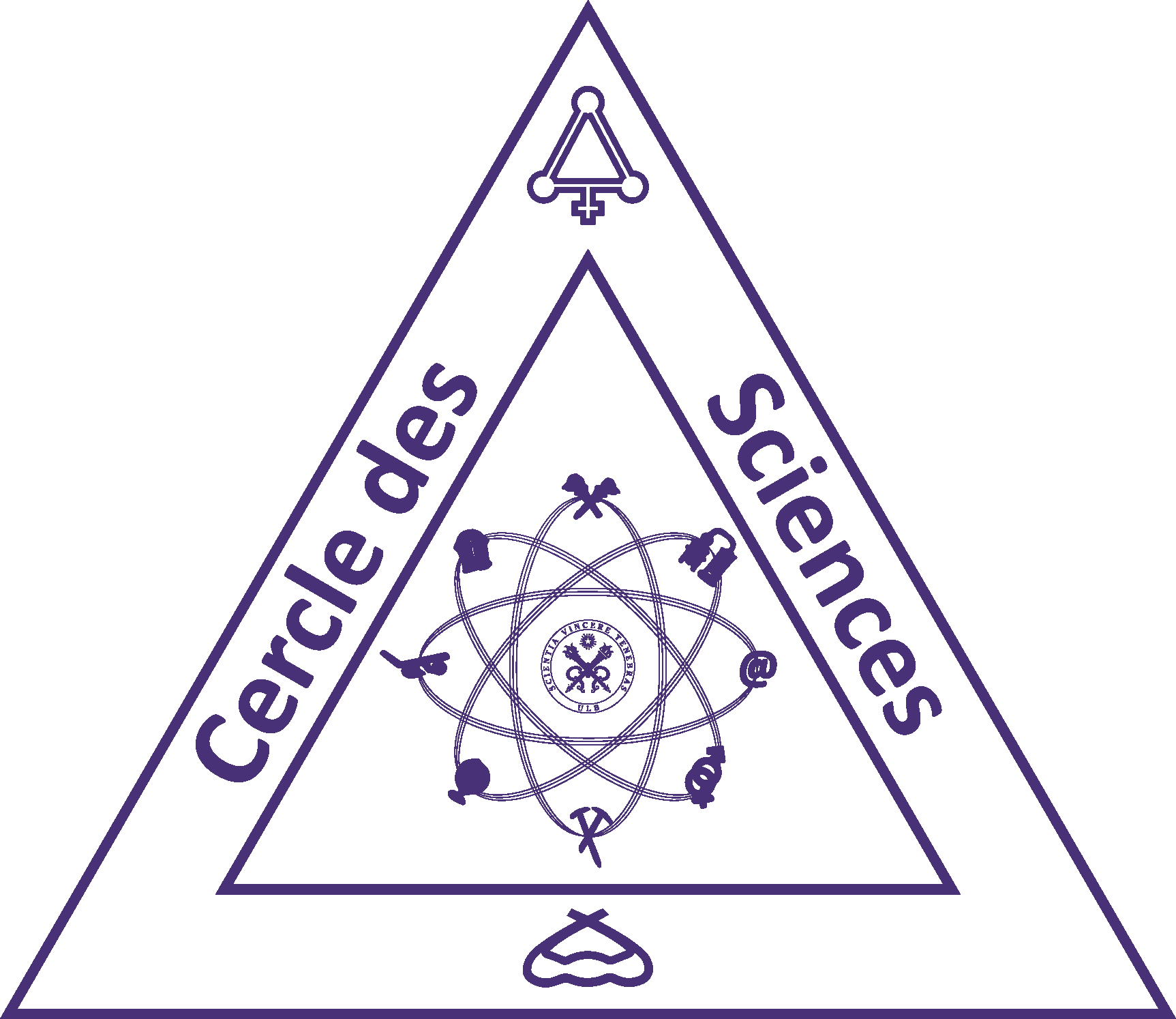
From 18th to 24th March 2024
Avenue Jeanne 44, Ixelles 1050
-
Mon
18/03 Monday 18/03 -
Tue
19/03 Tuesday 19/03 -
Wed
20/03 Wednesay 20/03 -
Thu
21/03 Thursday 21/03 -
Fri
22/03 Friday 22/03 -
Sat
23/03 Saterday 23/03 -
Sun
24/03 Sunday 24/03
Drink d'inauguration
13th edition of the Festival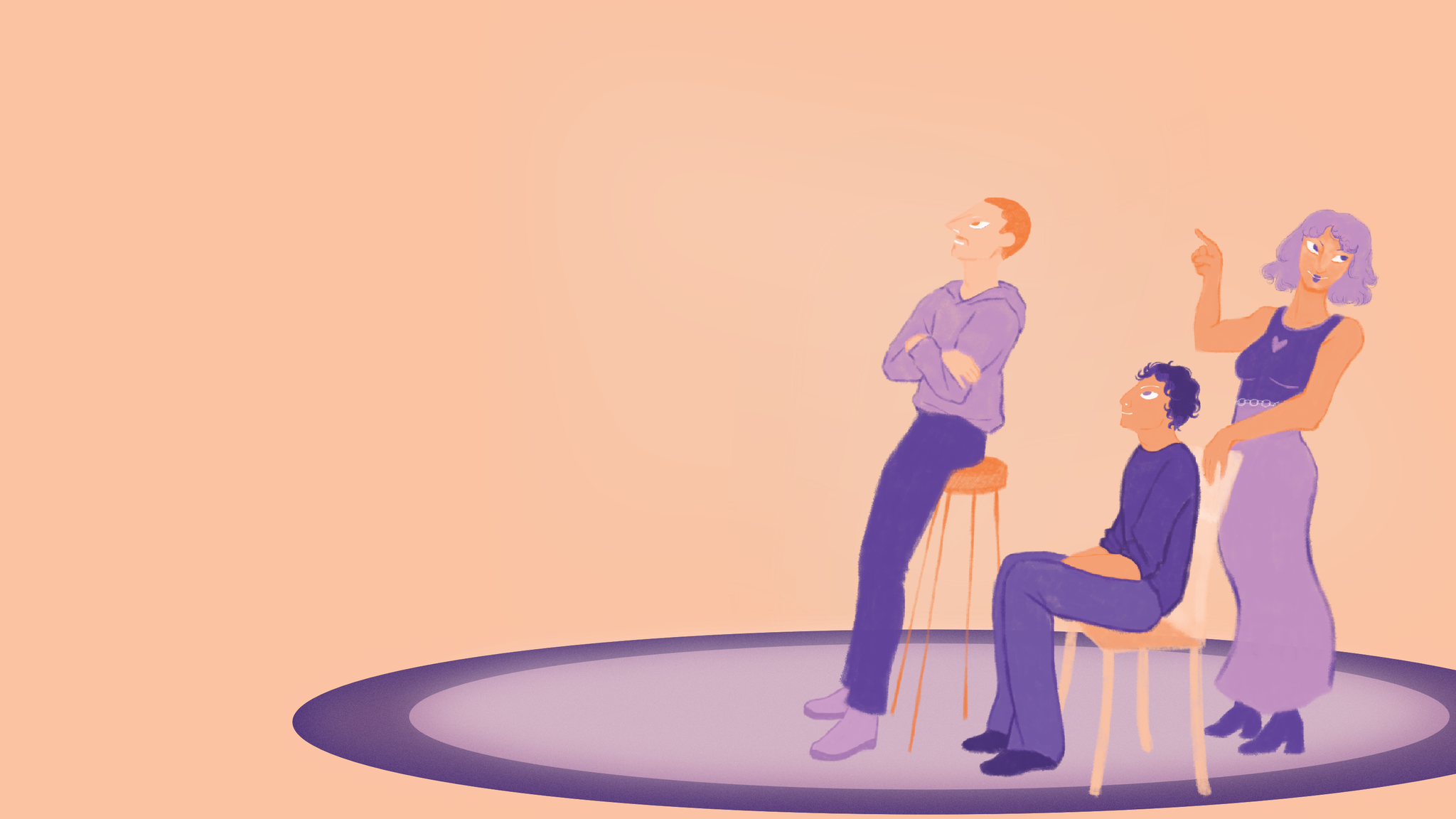
18 : 30
We invite you to the opening evening of the Brussels Science Film Festival and Printemps des Sciences 2024 ! La evening will start at 6.30 pm and you will be offered a drink and fingerfoods.
You will then have the opportunity to attend the scree...
We invite you to the opening evening of the Brussels Science Film Festival and Printemps des Sciences 2024 ! La evening will start at 6.30 pm and you will be offered a drink and fingerfoods.
You will then have the opportunity to attend the screening of La traversée, l'histoire de l'expédition Nanok (FRstEN), a film about the mission of two adventurers who set off in search of samples in the north of the globe, thus enabling the beginnings of scientific research. The documentary will be followed by a talk by Nathan Goffart, one of the two explorers, and Nadine Mattielli and Steeve Bonneville, both researchers and professors at the Université Libre de Bruxelles, who will be on hand to talk about the future of these samples.
It is recommanded to sign to the evening, wich is completely free : lien d'inscription
This evening is brought to you in collaboration with Inforsciences ULB.
Drink d'inauguration
18 : 30

Remise du Prix du Jury Film
13th edition of the Festival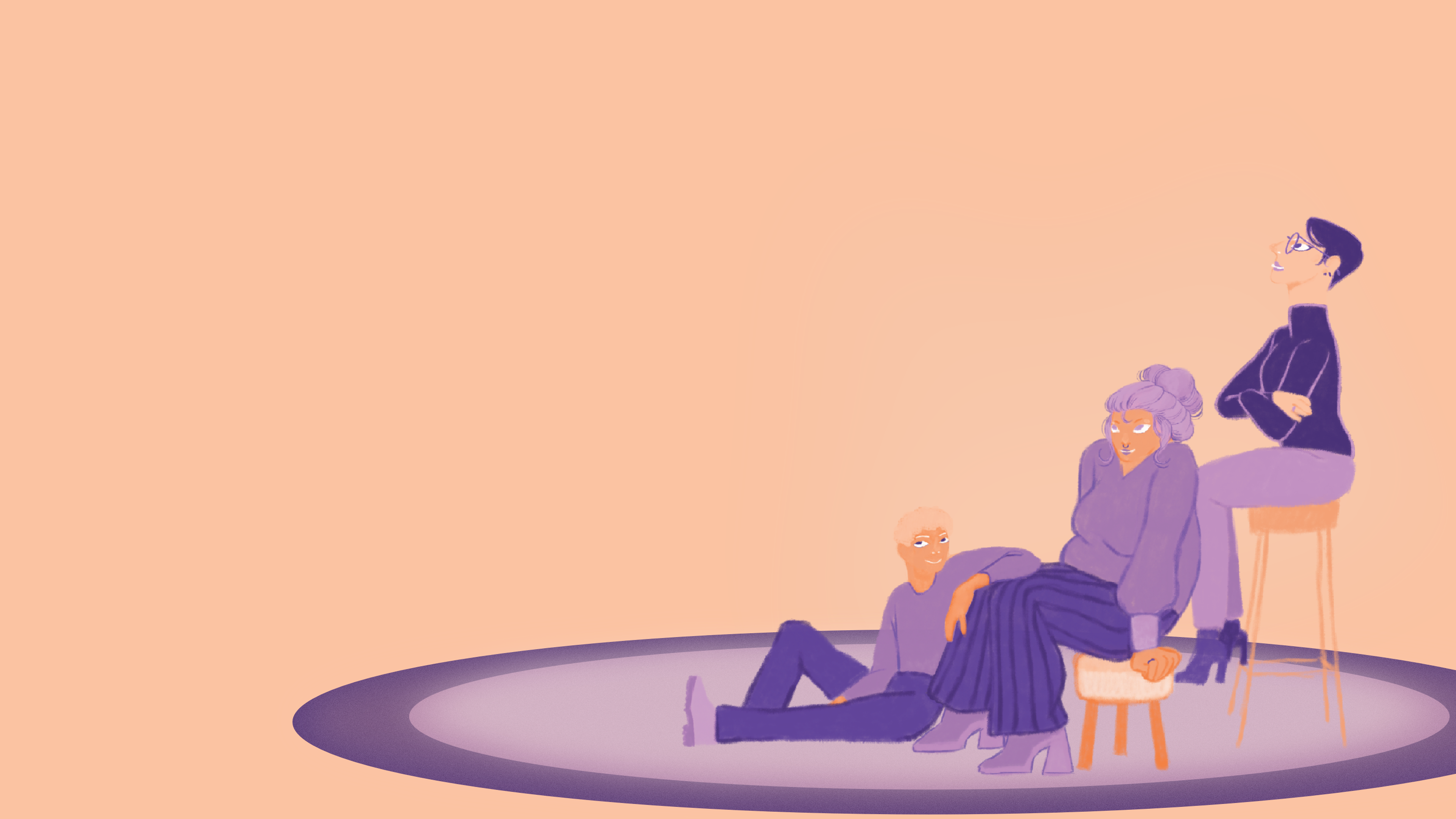
19 : 30
Discover the members of the Film Jury for the 2024 edition! They will have the opportunity to award the Film Jury Prize to one of the films in the program, based on criteria such as the scientific popularisation r...
Discover the members of the Film Jury for the 2024 edition! They will have the opportunity to award the Film Jury Prize to one of the films in the program, based on criteria such as the scientific popularisation represented in the documentary, its direction and beauty.
Remise du Prix du Jury Film
19 : 30

La traversée, l'histoire de l'expédition Nanok
Projection All ages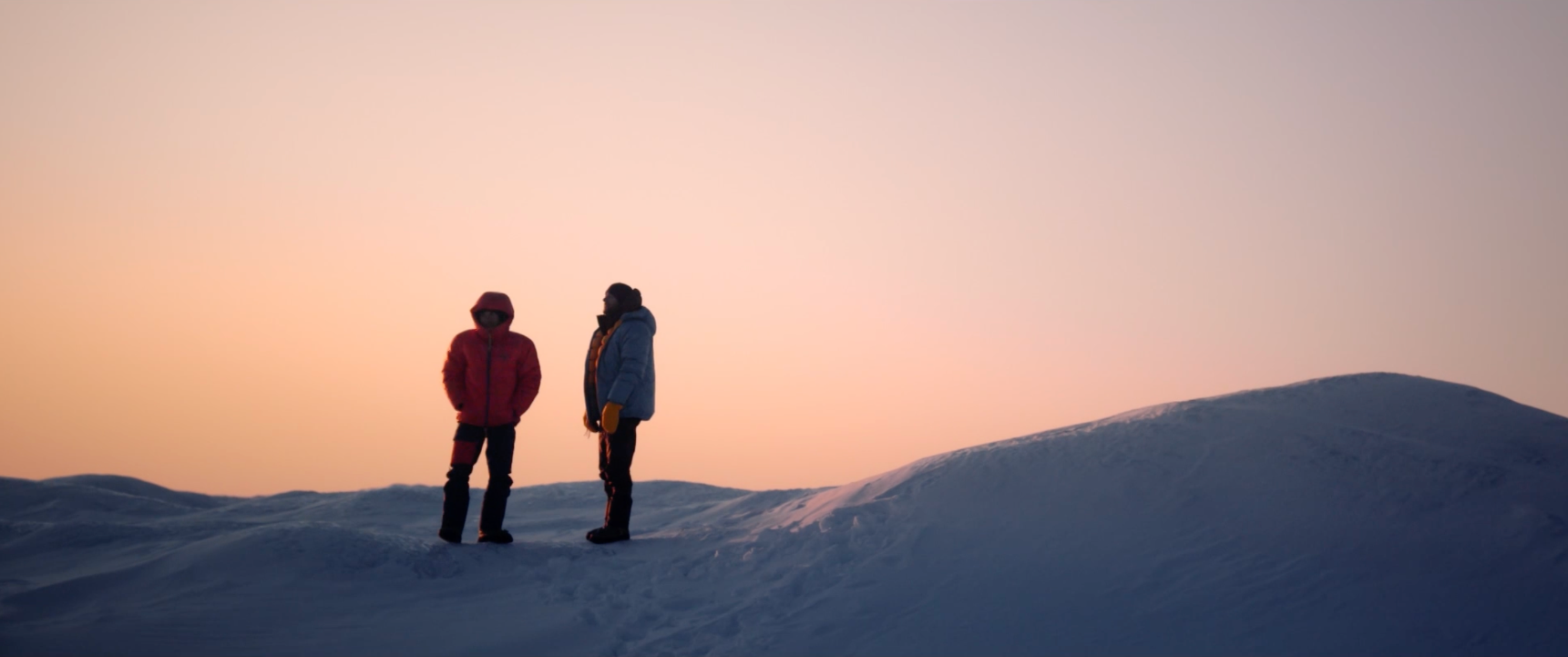
Faced with the barren expanse of the ice sheet and the icy scorch of the wind that slaps their faces at over 100 km/h, Gilles and Nathan, in their early thirties, realize the insolence of their project : an unprecedented five-month expedition unassis...
Faced with the barren expanse of the ice sheet and the icy scorch of the wind that slaps their faces at over 100 km/h, Gilles and Nathan, in their early thirties, realize the insolence of their project : an unprecedented five-month expedition unassisted by ski, sea kayak and climbing through Greenland, one of the most hostile corners of the globe. Throughout the trip, they collect environmental data for three Belgian research centers. How do two ordinary people from Brussels come to undertake this extraordinary project? What does it mean to be an explorer in 2022, when there is no more land to discover but a planet to preserve?
Difficulty: ★☆☆
La traversée, l'histoire de l'expédition Nanok
Difficulté : ★☆☆
20 : 00
90 min
All ages
FRstEN

Scenarist : Xavier Ziomek & Viviane de Laveleye
Realisator : Xavier Ziomek
Production house : Sioux productions
Production year : 2023
Conférence
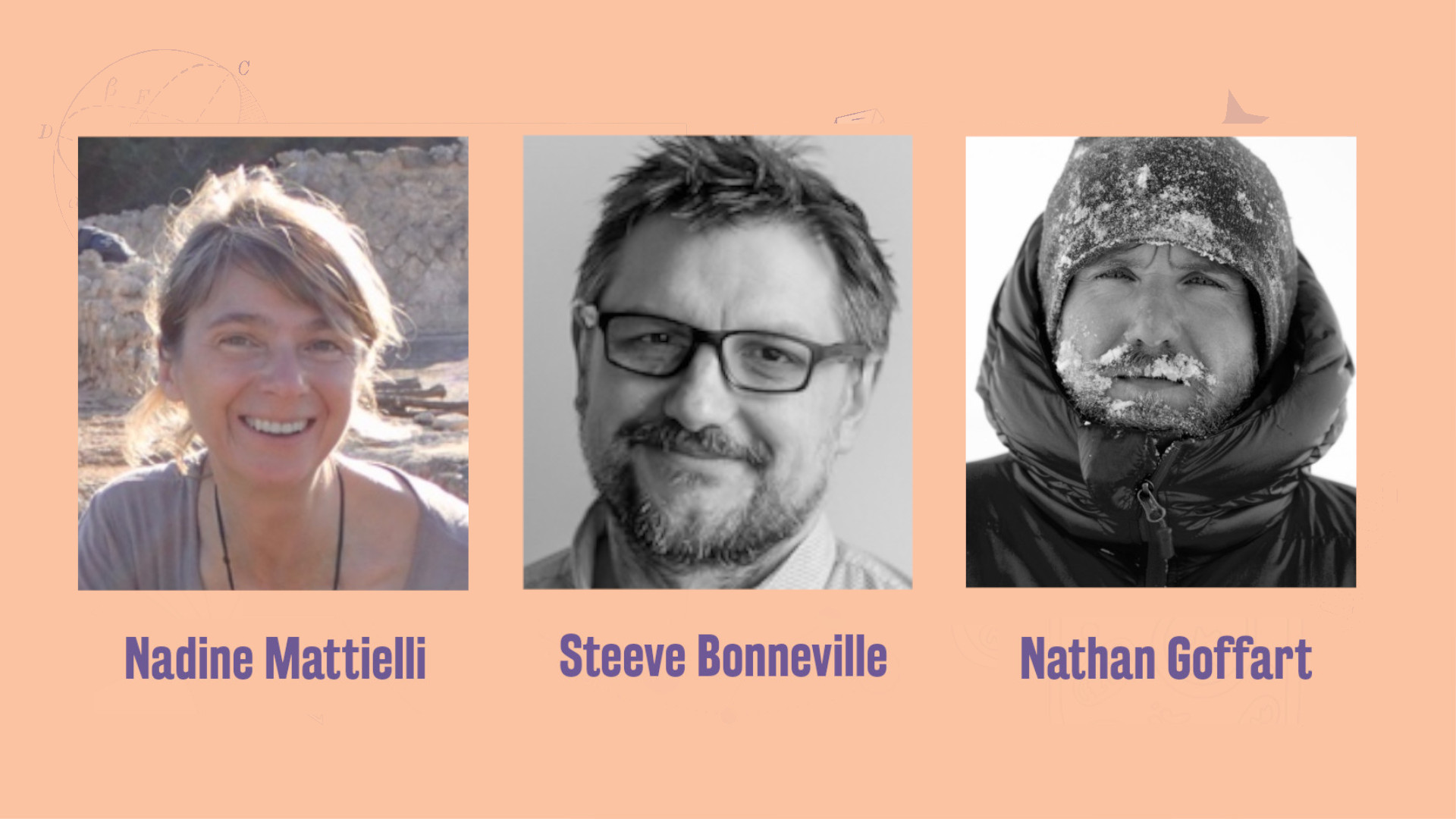
21 : 30
Nathan Goffart, one of the adventurers on the Nanok expedition, has a real passion for sport. Sport is a central part of his life. When he's not busy working in the food supplements company he set up with his br...
Nathan Goffart, one of the adventurers on the Nanok expedition, has a real passion for sport. Sport is a central part of his life. When he's not busy working in the food supplements company he set up with his brother (name: Lepivits), he's running, climbing, playing football and many other activities, often all in the same day. Alongside his sporting life, he has a real passion for the mountains and hopes to become a mountain guide in the near future, a goal he is working hard towards.
From an early age, Nathan has enjoyed pushing himself and taking on daring challenges. So when he heard about Gilles' crazy project, he was deeply moved, as much by the sporting aspect and the personal challenges as by the scientific issues involved. Nathan embodies the quiet strength Gilles can count on when he needs it, thanks to his steely resolve and unfailing determination. Always positive, even in the most difficult of times, his joie de vivre and energy will be a source of inspiration, even in the heart of the Arctic cold, giving strength to those most in need.
Nadine Mattielli, is a geologist and geochemist. She is currently professor and co-director of the G-Time Laboratory (Geochemistry & Geophysics: Tephra, Isotopes, Minerals and Earthquakes) in the Department of Geosciences, Environment and Society at the ULB Faculty of Science.
N. Mattielli completed his doctoral thesis at ULB, studying the dynamics of the mantle and the evolution of the Great Kerguelen Magmatic Province. N. Mattielli then did a post-doctorate at the Vrije Universiteit in Amsterdam on the U-Th decay series of the lavas of the Mid-Atlantic Ridge. As soon as she obtained a permanent position at ULB, she applied and developed innovative geochemical and isotopic tools (including non-traditional metal isotopes) to study the sources of metal elements and the processes that govern their fractionation in the mantle, but also and above all in the environment. It is in this context that she has built up research programmes dedicated to studying the origins of atmospheric particles in polluted environments, but also in polar regions such as Antarctica and Greenland, in order to reconstruct atmospheric (palaeo)circulation in these extreme regions and the consequences for the climate. She devotes a great deal of her time and energy to research, but also to university teaching and raising awareness of the Earth sciences among young people.
Steeve Bonneville is a professor in the 'Biogeochemistry and System Modelling' team in the Environment and Society Geosciences Department at ULB. Originally from Normandy where he trained in biology, he obtained a PhD in Geomicrobiology at the University of Utrecht in the Netherlands and then continued his research at the University of Leeds in the UK before joining ULB in 2010. Steeve Bonneville has developed an eclectic research at the interface between biology and geology, where fungi, plants, bacteria and, of course, minerals and rocks are intertwined to better understand the major changes in our environment. As part of the Nanok expedition, he has set up a scientific project centred on collecting snow samples during the Traversée, which will provide a better understanding of the influence of atmospheric deposits on the melting of the Greenland ice cap.
Conférence
21 : 30

Thinking outside the tank !
Projection School - All ages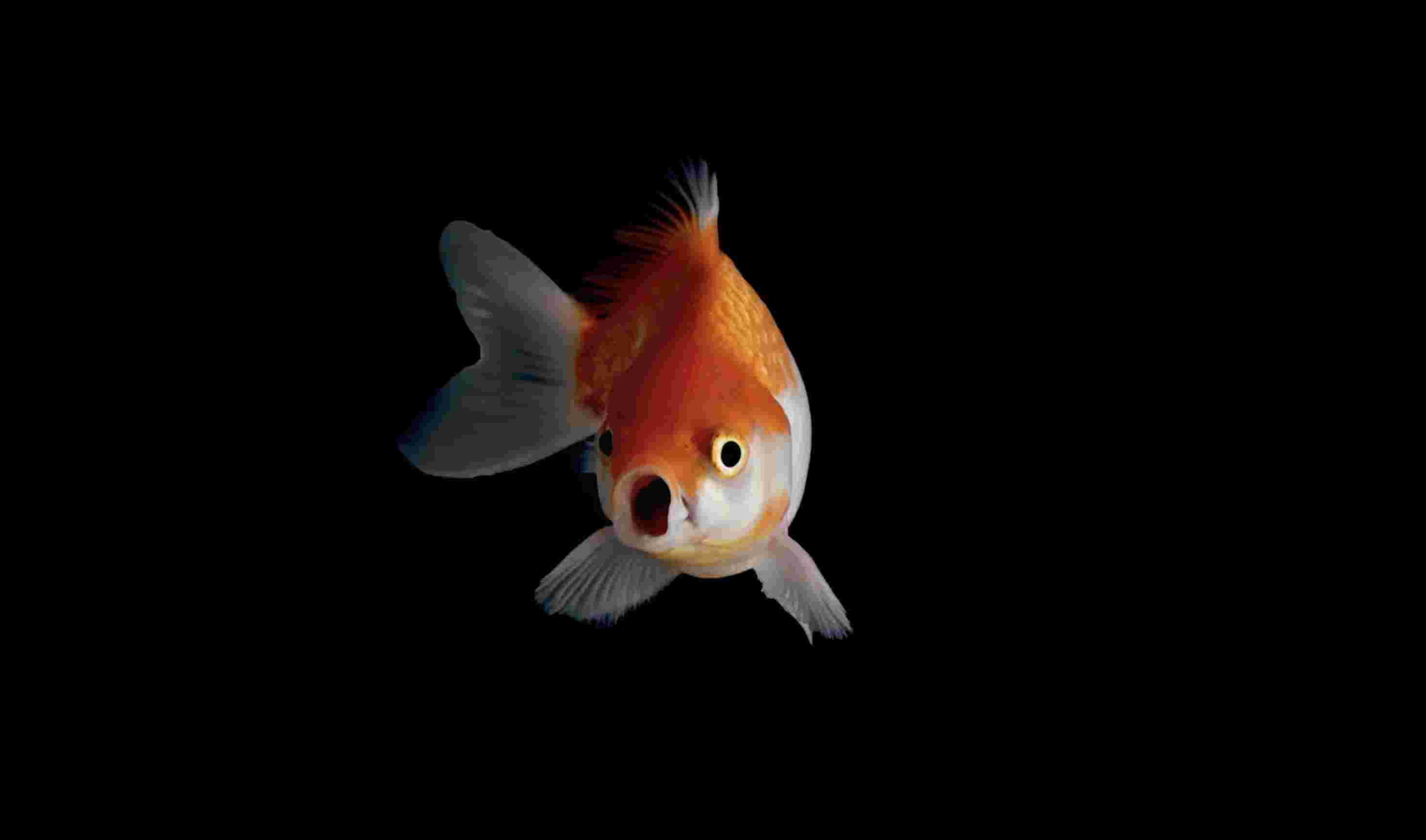
Jury's favoriteEveryone has had a Maurice the goldfish at home. His story could just as easily be that of Nemo, Moby Dick, Cleo, Bubbles... all the litt...
Jury's favoriteEveryone has had a Maurice the goldfish at home. His story could just as easily be that of Nemo, Moby Dick, Cleo, Bubbles... all the little nicknames we have given our living room companions. Maurice is the icon of his entire animal family : fishes. For most humans, it's impossible to believe that they have any intelligence whatsoever. But is Maurice really this silly animal, with a memory of no more than three seconds ? And what if we were wrong ? From the abyss to temporary puddles, from streams to waterfalls, fish can be found wherever there's water on the planet... But what do we really know about them? Scientists all over the oceans are devising incredible experiments to test different facets of what we call intelligence in these animals : their cognitive faculties, their modes of organisation, their ability to adapt... and even their emotions ! And the researcher's discoveries are astonishing ! And what if some fish were beings gifted with unsuspected intelligence ? And what if Maurice and his cousins weren't as stupid as we think ?!
Difficulty: ★☆☆
Trailer
School : reservation
Thinking outside the tank !
Difficulté : ★☆☆
10 : 30
52 min
School - All ages
FR

Scenarist : Ariane Lamarsaude & Stéphane Jacques
Producer : Claire Dornoy
Realisator : Arianne Lamarsaude & Stéphane Jacques
Production house : Les Films D’ici
Production year : 2022
Trailer
School : reservation
Allergies, when the body rebels
Projection School - All ages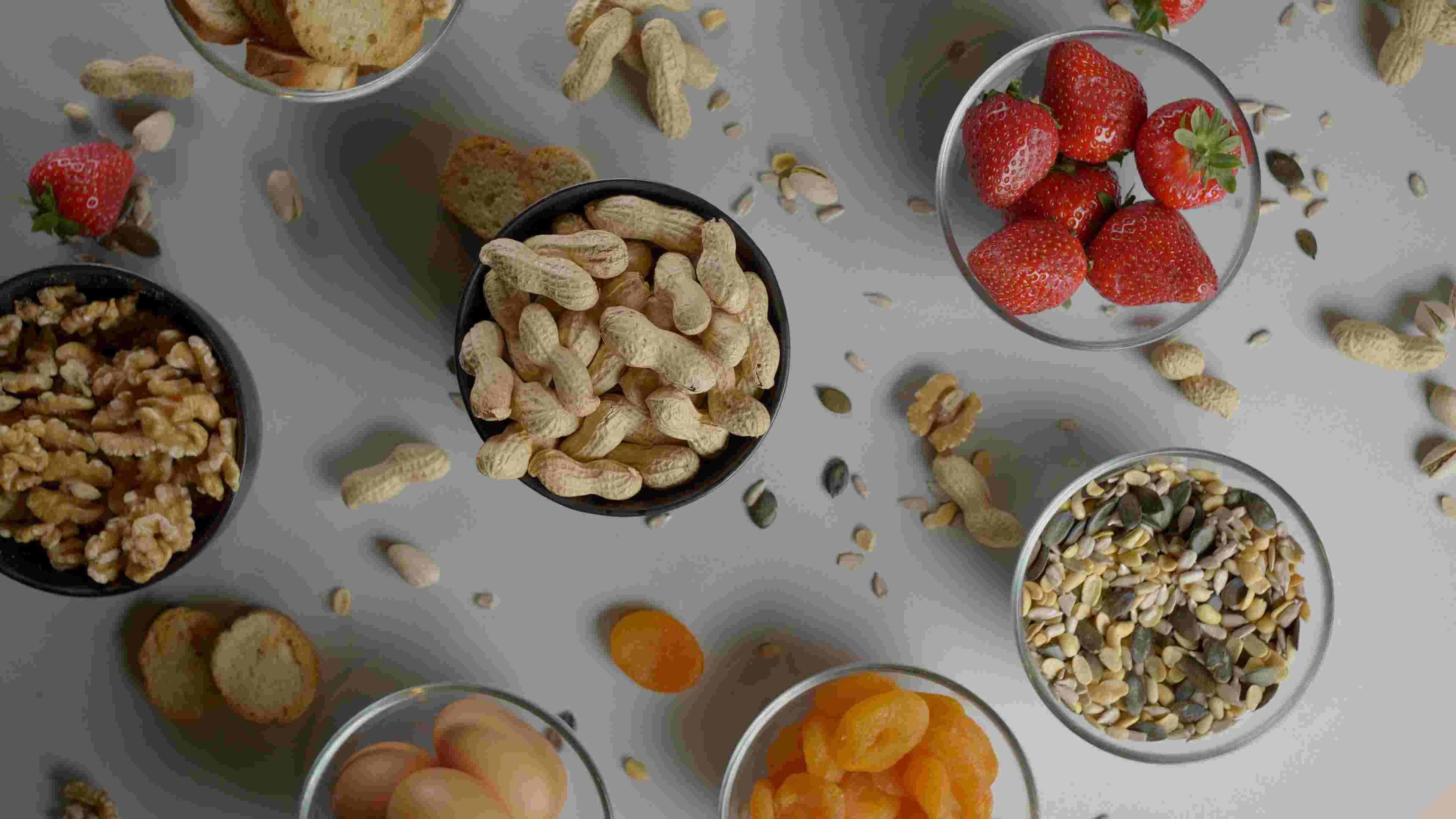
From peanuts to pollen, from cats to dust mites, allergies are increasing dramatically worldwide with harmless substances triggering potentially fatal reactions in some people. Experts predict that by 2050, half the population will be allergic. Why i...
From peanuts to pollen, from cats to dust mites, allergies are increasing dramatically worldwide with harmless substances triggering potentially fatal reactions in some people. Experts predict that by 2050, half the population will be allergic. Why is our immune system going into overdrive? To contain this epidemic, scientists are studying the interactions between genetics, environmental factors and our modern lifestyles, and are developing revolutionary approaches to prevention and treatment.
Difficulty: ★☆☆
Trailer
School : reservation
Allergies, when the body rebels
Difficulté : ★☆☆
14 : 00
52 min
School - All ages
FR

Scenarist : Cosima Dannoritzer
Producer : Ségolène Dujardin
Realisator : Cosima Dannoritzer
Production house : Découpages Productions - ARTE France
Production year : 2021
Trailer
School : reservation
Deep Time : an experiment beyond time
Projection All ages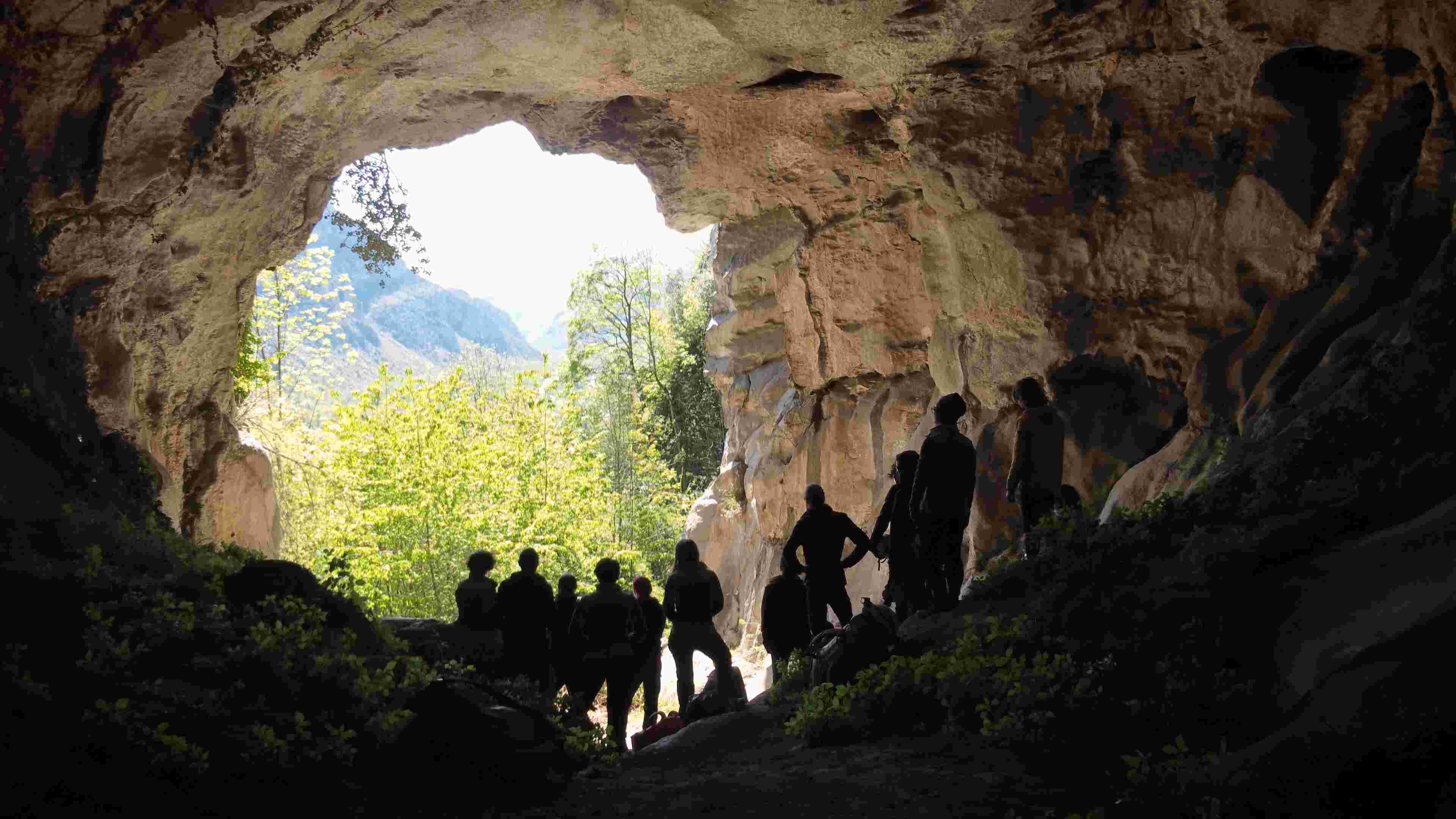
Living underground for 40 days with no concept of time: that’s the challenge set by explorer Christian Clot to 7 men and 7 women voulunteers, a world first. How will thex adapt to this extreme confinement ? How will the body and the brain respond t...
Living underground for 40 days with no concept of time: that’s the challenge set by explorer Christian Clot to 7 men and 7 women voulunteers, a world first. How will thex adapt to this extreme confinement ? How will the body and the brain respond to the loss of temporal reference points ? Immersed in one of Europe’s largest caves with these timeonauts, this film tells the story of an unprecedented collective human and scientific experiment.
Difficulty: ★☆☆
Deep Time : an experiment beyond time
Difficulté : ★☆☆
19 : 00
52 min
All ages
FRstEN

Scenarist : Guy Beauché & Christian Clot
Producer : Gaëlle Guyader
Realisator : Guy Beauché
Production house : ZED
Production year : 2021
Intervention
PhD in Psychological Sciences
19 : 55
Philippe Peigneux is PhD in Psychological Sciences (2000; University of Liège [ULg], Belgium). He is currently Tenure Professor of Clinical Neuropsychology at the Université Libre de Bruxelles (ULB), Belgium, ...
Philippe Peigneux is PhD in Psychological Sciences (2000; University of Liège [ULg], Belgium). He is currently Tenure Professor of Clinical Neuropsychology at the Université Libre de Bruxelles (ULB), Belgium, where he is also the co-director of the Neuropsychology and Functional Neuroimaging Research Unit (UR2NF; http://dev.ulb.ac.be/ur2nf) affiliated at CRCN and at the ULB Neurosciences Institute (UNI; http://uni.ulb.ac.be). Professor Peigneux is active in sleep research since 1996 and published more than 200 papers in peer-reviewed journals. His research is mainly but not exclusively focused on investigating the relationships between sleep, learning and memory consolidation processes, and in a wider perspective the interrelationships between cognitive processes and vigilance states, including sleep and biological rhythms, both in healthy and pathological conditions, in adulthood and across children development. A specific focus is made on the processes by which novel representations are created and novel information consolidated in long-term memory. Studies are primarily conducted using behavioural and cognitive approaches and advanced structural (DTI) and functional (fMRI) magnetic resonance , Near InfraRed Spectroscopy (NIRS), electroencephalography (EEG) and magneto-encephalography (MEG) techniques. Philippe Peigneux is a member of the European Sleep Research Society (ESRS) since 2001 and was part of the ESRS Scientific Committee (2006-2008) then Secretary in the ESRS Board (2008-2012), ESRS President (2012 – 2016) then Past-President (2016-2020).
Intervention
19 : 55

Archaeology world : Making bodies speak
Projection All ages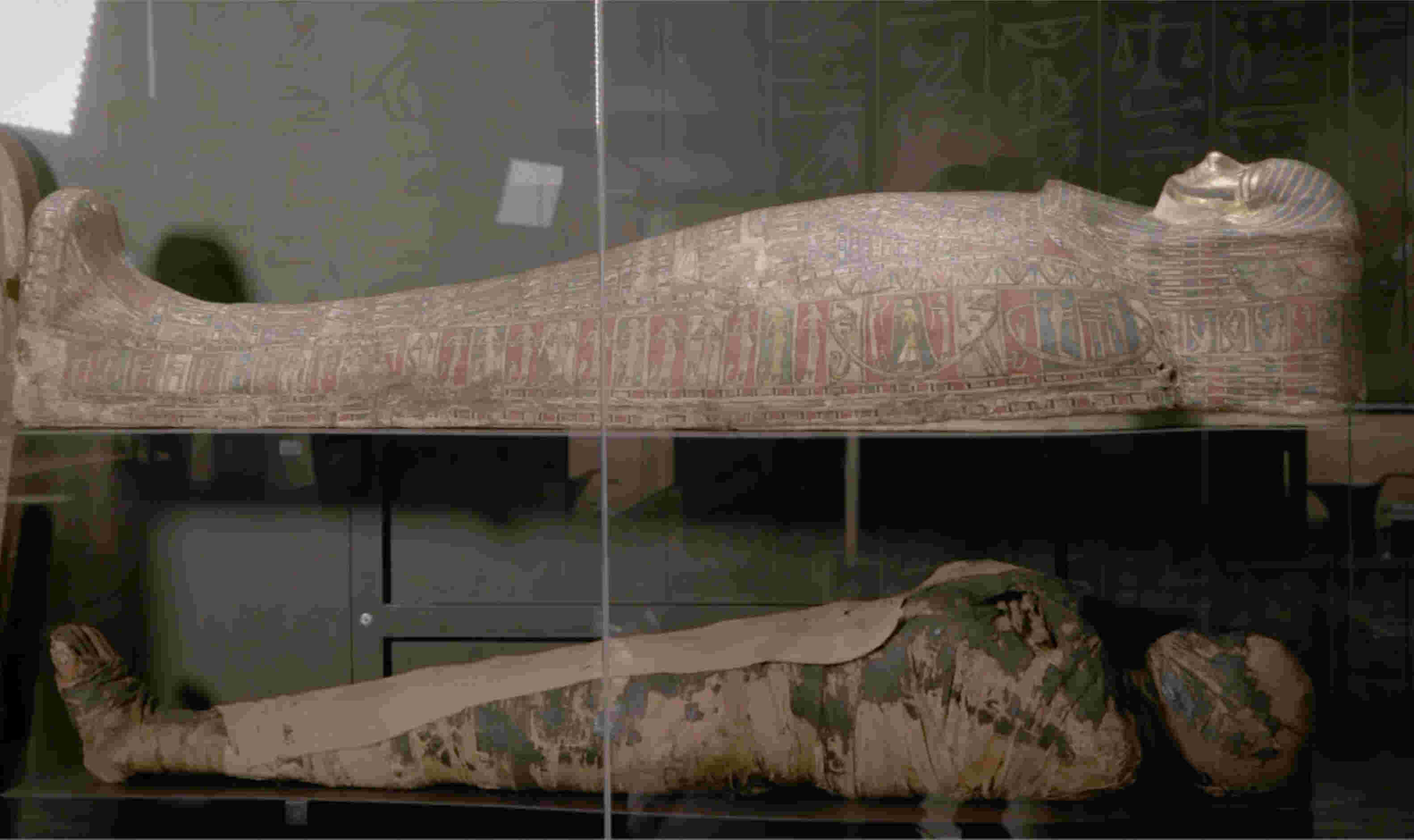
In our childhood dreams, archaeology was synonymous with thrilling adventures led by intrepid heroes. Today, adventure and magic have given way to an equally powerful discipline : science. Today, laboratories and researchers rely on the latest techno...
In our childhood dreams, archaeology was synonymous with thrilling adventures led by intrepid heroes. Today, adventure and magic have given way to an equally powerful discipline : science. Today, laboratories and researchers rely on the latest technologies and scientific breakthroughs to explore our origins in minute detail. Science has begun to shed light on the unknown aspects of our history, and nothing will escape it.
Difficulty: ★☆☆
Archaeology world : Making bodies speak
Difficulté : ★☆☆
21 : 00
52 min
All ages
FRstEN

Scenarist : Alexandra Barbot
Producer : Dominique Tibi
Realisator : Alexandra Barbot & Stéphane Jacques
Production house : Roche Productions
Production year : 2022
Intervention

21 : 55
Tara Chapman (UK) is a palaeoanthropologist working at the Royal Belgian Institute of Natural Sciences (RBINS) and the Laboratory of Anatomy, Biomechanics and Organogenesis (LABO) at the Free University of Bruss...
Tara Chapman (UK) is a palaeoanthropologist working at the Royal Belgian Institute of Natural Sciences (RBINS) and the Laboratory of Anatomy, Biomechanics and Organogenesis (LABO) at the Free University of Brussels (ULB). She is interested in how modern clinical technology can be used to reconstruct extinct fossil hominids and analyse their potential locomotion. With colleagues at the IRSNB and ULB, she has virtually reconstructed a complete Neanderthal skeleton from the fossil remains of the Spy II Neanderthal skeleton in order to analyse how this skeleton might have walked. She is also working on the fossil Homo naledi. In addition to fossil hominids, she has worked on determining the sex of humans, including mummies.
Alexandra Boucherie has a doctorate in archaeology, specialising in biological anthropology, and is a scientific collaborator at ULB's Centre de Recherches en Archéologie et Patrimoine (CReA-Patrimoine). After a Master's degree in biological anthropology at the University of Bordeaux and an MSc in forensic anthropology at Bournemouth University, Alexandra joined the ULB to develop her doctoral thesis, which she will defend in 2023. The aim of this methodological project was to develop a new tool for estimating the biological sex of a subject from its fragmentary bone remains, by examining the sexual dimorphism of the base of the skull and the inner ear on an osteological assemblage from Western Europe. Having participated in various excavation campaigns in Europe, Alexandra has extensive experience in the exhumation and analysis of human bone remains found on archaeological sites, but has also developed her expertise in forensic contexts in Belgium and abroad. Her favored research topics are biological identification, sexual diagnosis, the archaeology of historical and contemporary multiple burials sites, stress indicators and bone traumas.
Intervention
21 : 55

Intervention du Cinéphage
ULB Film Club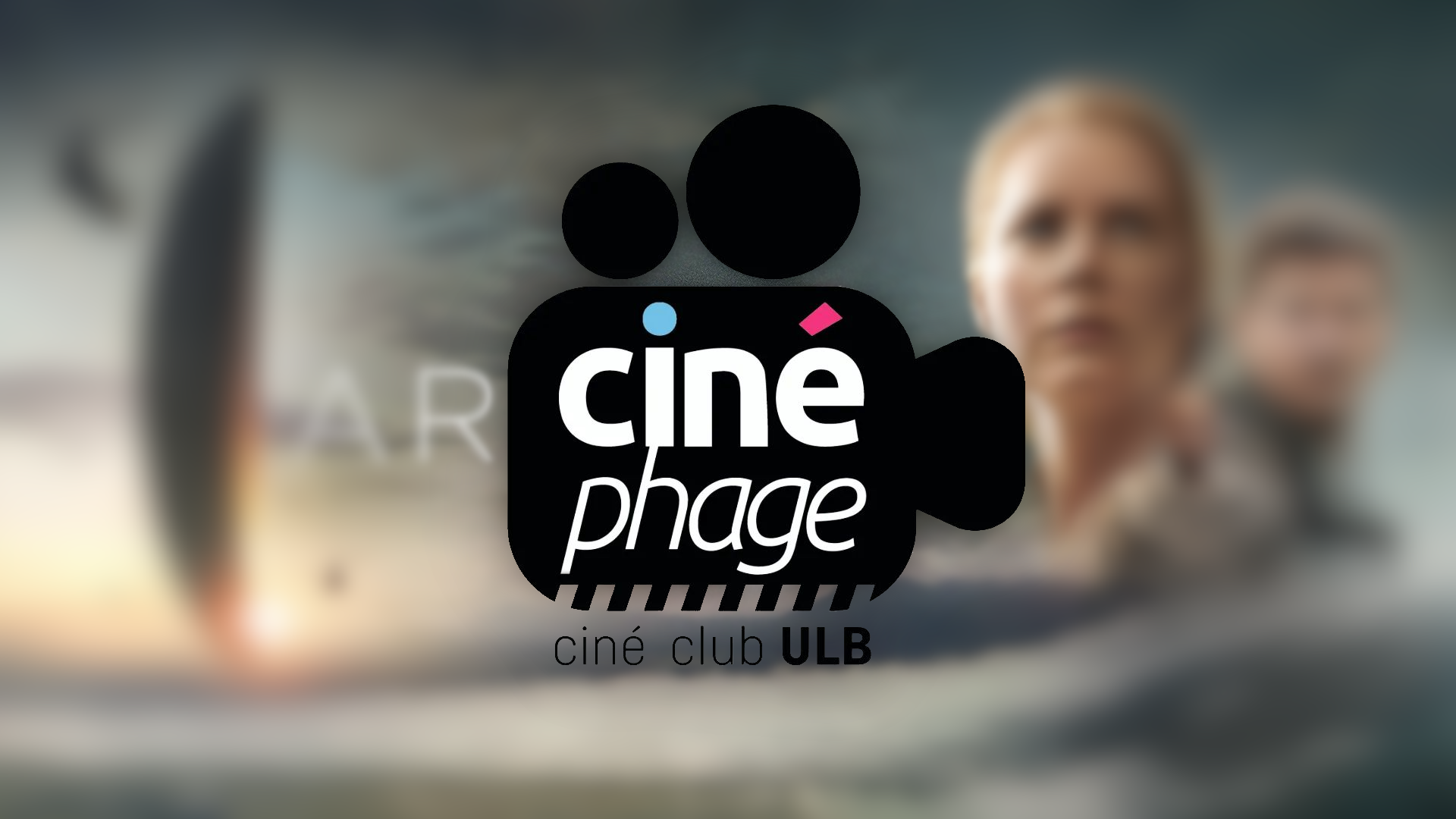
19 : 00
Cinéphage is a free weekly screening every Thursday at H1.302 on the Solbosch campus, open to all !
Info & Contact :
facebook : @cinephageulb
instagram : cinephage_ulb
contactcinephage@gmail.com...
Cinéphage is a free weekly screening every Thursday at H1.302 on the Solbosch campus, open to all !
Info & Contact :
facebook : @cinephageulb
instagram : cinephage_ulb
contactcinephage@gmail.com
Intervention du Cinéphage
19 : 00

Arrival
Projection All ages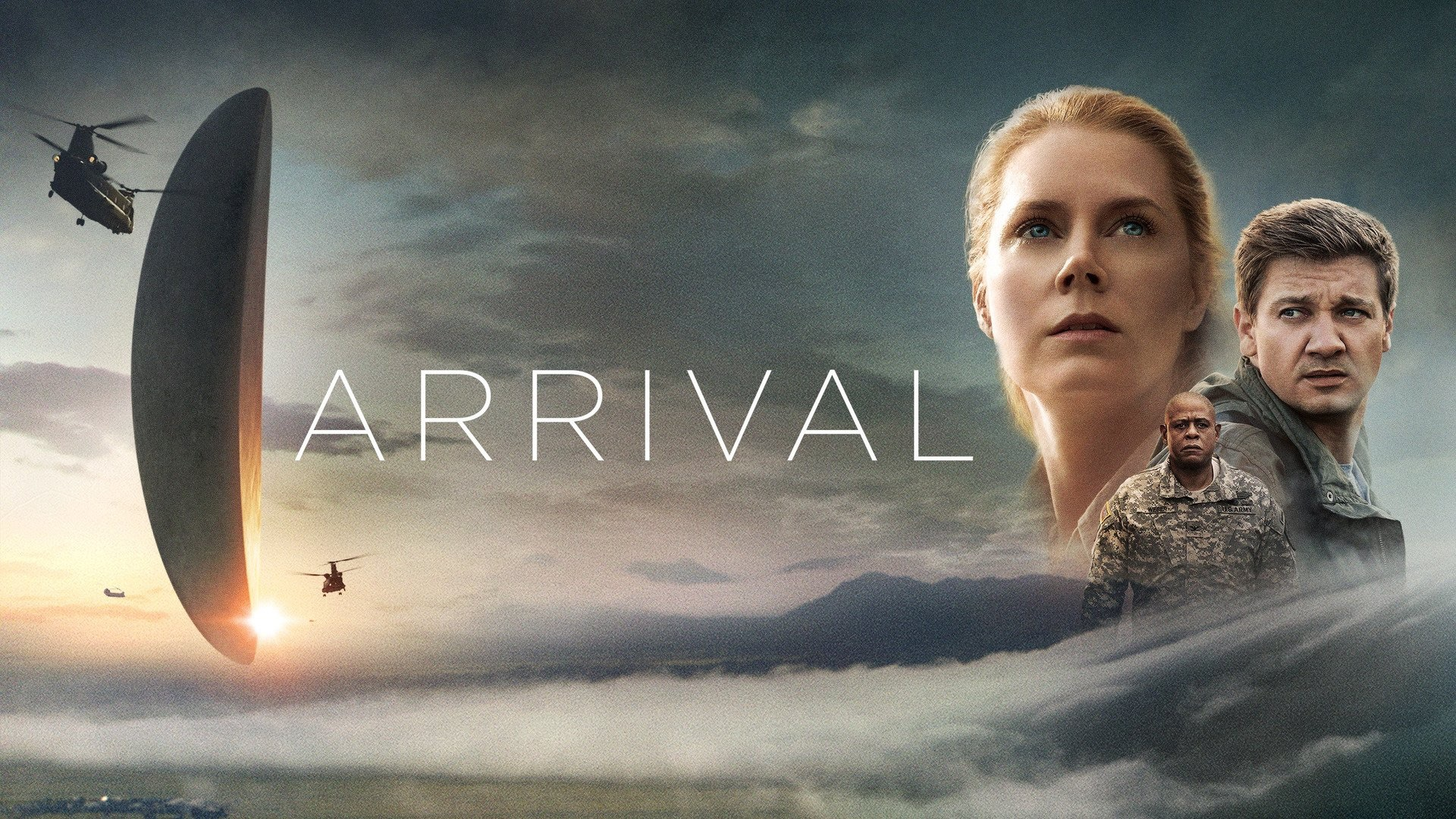
When mysterious spaceships appear all over Earth, a team of experts is assembled under the leadership of linguist Louise Banks (Amy Adams) to try to understand their intentions. Faced with the enigma of their presence and their mysterious messages, r...
When mysterious spaceships appear all over Earth, a team of experts is assembled under the leadership of linguist Louise Banks (Amy Adams) to try to understand their intentions. Faced with the enigma of their presence and their mysterious messages, reactions around the world are extreme and humanity soon finds itself on the brink of absolute war. Louise Banks and her crew have very little time to find answers to this mystery and communicate with these extraterrestrial visitors.
Difficulty: ★☆☆
Trailer
Arrival
Difficulté : ★☆☆
19 : 15
116 min
All ages
ENstFR

Scenarist : Eric Heisserer
Realisator : Denis Villeneuve
Production house : FilmNation Entertainment, 21 Laps Entertainment, Lava Bear Films
Production year : 2016
Trailer
The Climate : A 50-Year Battle
Projection School - All ages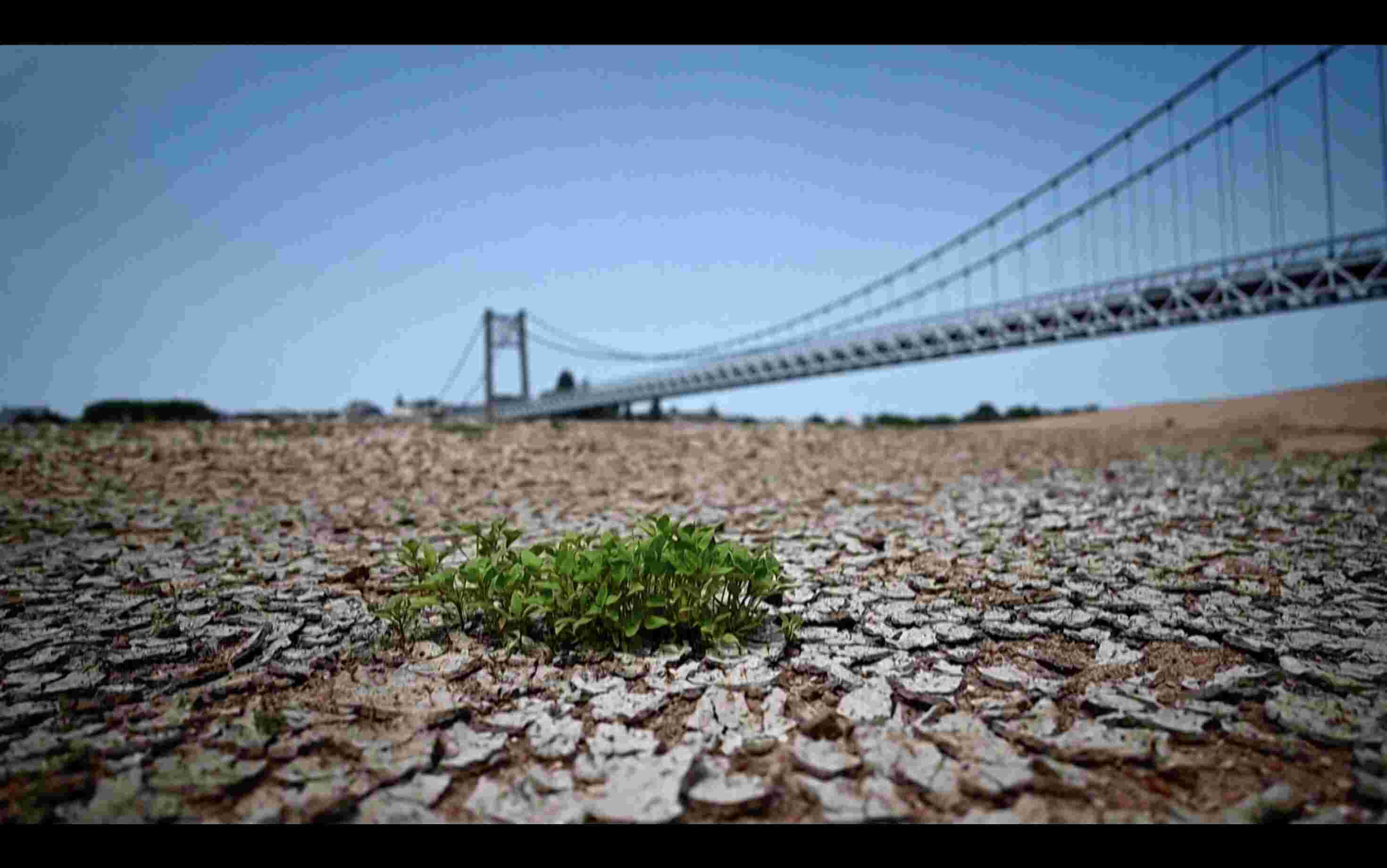
The battle for the climate began 50 years ago. In 1972, the danger of climate change was raised at the first United Nations Conference on the Human Environment in Stockholm. From then on, a fierce battle begins. It pits the convinced against the scep...
The battle for the climate began 50 years ago. In 1972, the danger of climate change was raised at the first United Nations Conference on the Human Environment in Stockholm. From then on, a fierce battle begins. It pits the convinced against the sceptical : those who want to act to avoid the predicted catastrophe and those who have an interest in staying put. Floods, droughts, fires, storms... The frequency of natural disasters is increasing. Can we say we didn't know? No. Scientists and experts have never stopped sounding the alarm. This film retraces the 50 years that have passed between scientific research and media polemics, citizen mobilisation and lobbying manoeuvres, political jousting and international negotiations, real advances and dashed hopes. Throughout this breathtaking story, with its many twists and turns, we meet the men and women who have fought to make the world aware of the climate emergency and give it the impetus to respond : an international reference cast bringing together politicians, scientists, experts, activists and citizens. They include John Kerry, the US special envoy for the fight against global warming, Robert Watson, former chairman of the IPCC, and Professor James E. Hansen, who was the first to calculate the scale of the danger. We also meet those who preferred to deny, dispute and prevaricate... This film is the only one to date to go behind the scenes to reveal the astonishing truth.
Difficulty: ★☆☆
School : reservation
The Climate : A 50-Year Battle
Difficulté : ★☆☆
10 : 30
72 min
School - All ages
FR

Producer : Simone Harari Baulieu, Laurent Robert Thibierge & Ted Anspach
Realisator : Elena Sender et Alexis Barbier-Bouvet
Production house : Effervescence Doc
Production year : 2022
School : reservation
Naples : under the volcanic threat
Projection School - All ages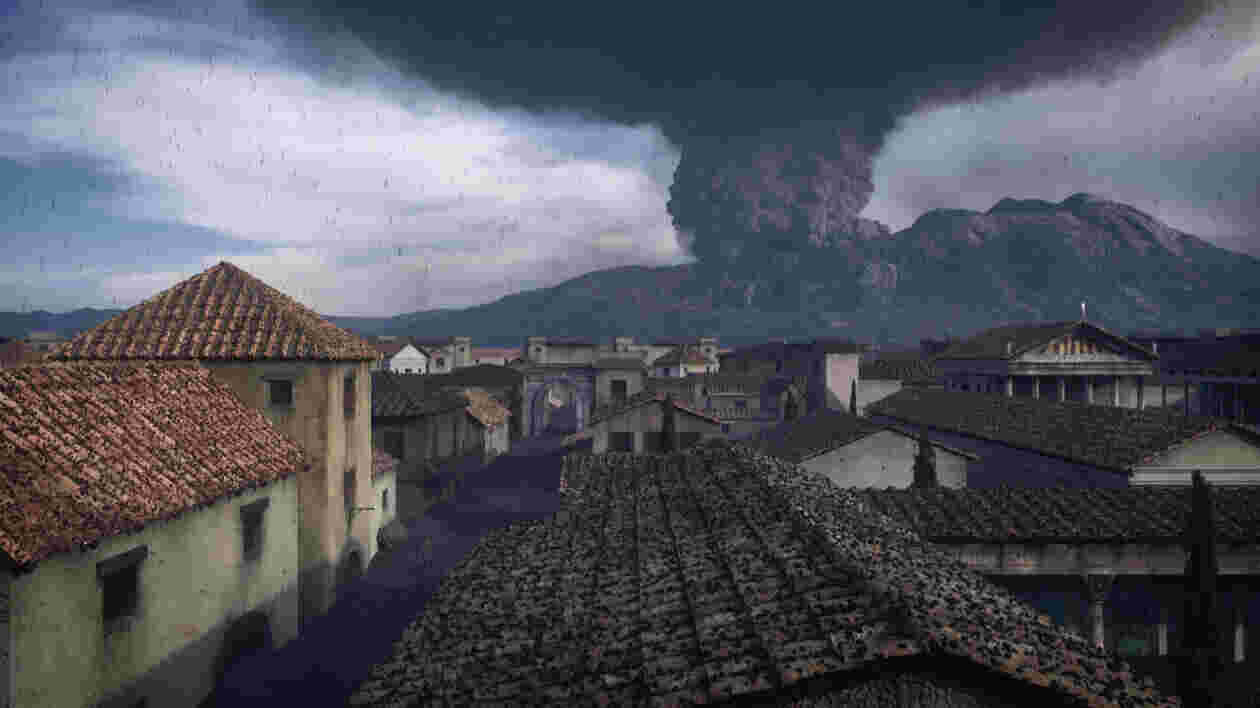
Between Vesuvius, the Aeolian Islands and Mount Etna, Italy is home to some of the most dangerous volcanoes on Earth. Today, the experts are unanimous: the Naples region is exposed to a major risk, an imminent eruption. Yet no one can say when it wil...
Between Vesuvius, the Aeolian Islands and Mount Etna, Italy is home to some of the most dangerous volcanoes on Earth. Today, the experts are unanimous: the Naples region is exposed to a major risk, an imminent eruption. Yet no one can say when it will happen, or where the danger will come from. How can we protect the bay ? How have people lived for millennia with the constant threat of devastating eruptions ? Using cutting-edge technology and spectacular aerial images, this historical and scientific investigation follows a team of international experts as they peer into the depths of these mountains of fire to prevent future tragedy. Together, they explore and model the complex geological process behind the eruptions in order to predict possible scenarios and improve their forecasts. A race against time to protect the 3 million people who live at the foot of these volcanoes.
Difficulty: ★☆☆
School : reservation
Naples : under the volcanic threat
Difficulté : ★☆☆
14 : 00
52 min
School - All ages
FR

Realisator : Laurence Thiriat
Production house : Artline Films & MyMax pour France Télévisions et RAI
Production year : 2021
School : reservation
Mission Artemis, a mega rocket to the Moon
Projection All ages
This summer, NASA made the maiden flight of the SLS rocket, the largest launcher ever built. This monumental craft is the keystone of the Artemis program, which aims to send back humankind on the Moon by 2025. However, this launcher will be NASA's la...
This summer, NASA made the maiden flight of the SLS rocket, the largest launcher ever built. This monumental craft is the keystone of the Artemis program, which aims to send back humankind on the Moon by 2025. However, this launcher will be NASA's last mastodon. Too big, too expensive, too difficult to build. Now, private companies are also capable of developing rockets, at lower cost and more quickly. But with SLS, this is no time for disruption. The sheer scale of the project heralds a return to the days of great technological adventures, the kind that have left their mark on the history of mankind.
Difficulty: ★☆☆
Trailer
Mission Artemis, a mega rocket to the Moon
Difficulté : ★☆☆
19 : 00
52 min
All ages
FRstEN

Scenarist : Laurent Mini
Realisator : Edward Beucler
Production house : La compagnie des Taxi-Brousses
Production year : 2023
Trailer
Intervention

19 : 55
Patrick Hendrick graduated with great distinction at the Vrije Universiteit Brussel (VUB) in Engineering technology as an electromechanical engineer. He is now responsible for the units of Aero-thermo-mechanics ...
Patrick Hendrick graduated with great distinction at the Vrije Universiteit Brussel (VUB) in Engineering technology as an electromechanical engineer. He is now responsible for the units of Aero-thermo-mechanics (ATM) and the Center for Research and Engineering in Space Technologies (CREST) at the Université libre de Bruxelles (ULB), where he also teaches at the École Polytechnique de Bruxelles. His research has led to around 70 publications and to a number of collaborations all over the globe, mainly focusing on the fields of aerodynamics, aeronautics and aerospace, as well as thermodynamics and applied mechanics. Vinciane Debaille graduated in geology and specialized in geochemistry. She is a senior research associate at FNRS and is professor at the Université Libre de Bruxelles (ULB) since 2010, focusing among other things on the formation of the solar system from its constituent elements, chondrites, to the evolution of terrestrial planets such as Earth and Mars in a global geodynamic context revealed by isotope geochemistry. Since 2020, she is part of the group of European scientists selected by ESA to take part in the NASA-led Mars2020 Perseverance mission.
Intervention
19 : 55

New Eye on the Universe
Projection All ages
In July 2022, NASA’s James Webb Space Telescope released its first images, looking further back in time than ever before to show our universe in stunningly beautiful detail. But that was just the beginning : with tons of new data and spectacular im...
In July 2022, NASA’s James Webb Space Telescope released its first images, looking further back in time than ever before to show our universe in stunningly beautiful detail. But that was just the beginning : with tons of new data and spectacular images flooding in, Webb is allowing scientists to peer deep in time to try to answer some of astronomy’s biggest questions. When – and how – did the first stars and galaxies form? And can we see the fingerprints of life in the atmospheres of distant worlds – or even within our own solar system?
Difficulty: ★☆☆
Trailer
New Eye on the Universe
Difficulté : ★☆☆
21 : 00
53 min
All ages
ENstFR

Scenarist : Terri Randall
Producer : Terri Randall
Realisator : Terri Randall
Production house : PBS NOVA
Production year : 2023
Trailer
Intervention
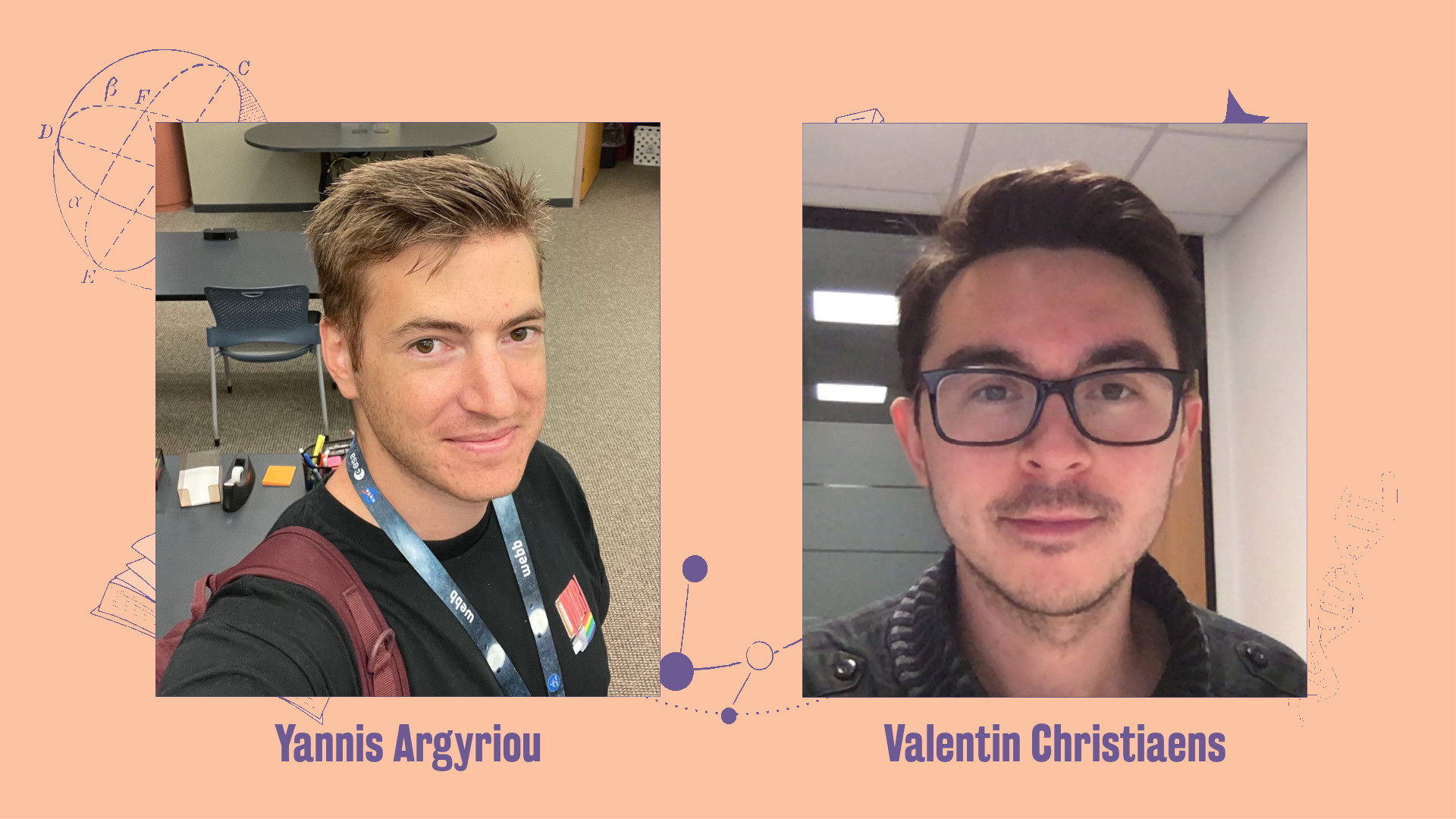
21 : 55
PhD Yannis Argyriou works at the Université de Louvain as an expert on ground-based and space-based astronomical instruments. Yannis has worked on the James Webb mission since 2017, and received his PhD in 202...
PhD Yannis Argyriou works at the Université de Louvain as an expert on ground-based and space-based astronomical instruments. Yannis has worked on the James Webb mission since 2017, and received his PhD in 2021. His work focuses on understanding optical, electronic and thermal effects, and their impact on the science extracted from James Webb data. His ambition is to create the best images and spectra for the astronomical community and young researchers of the future. In 2023 Yannis started working on the ESA space mission called ARIEL for the detection of exoplanets' atmospheric signatures, as well as on the METIS instrument for the latest generation telescope "ELT" in Chile.
PhD Valentin Christiaens is a post-doctoral researcher in astrophysics at the KU Leuven and at the University of Liège. After a bachelor's degree in physics and a master's degree in space sciences at ULiège, he left our rainy soil and spent 8 years roaming the southern hemisphere, first for a doctorate at the University of Chile, then a post-doctorate at Monash University in Melbourne, acquiring expertise in the fields of direct imaging and the modelling of protoplanetary disks along the way. The journey ends with a return to his alma mater in 2021 to begin a mandate as a FNRS postdoctoral researcher, alternating from September 2023 with a position at the KUL linked to the characterisation of exoplanet atmospheres with the JWST telescope.
Intervention
21 : 55

Music's superpowers
Projection School - All ages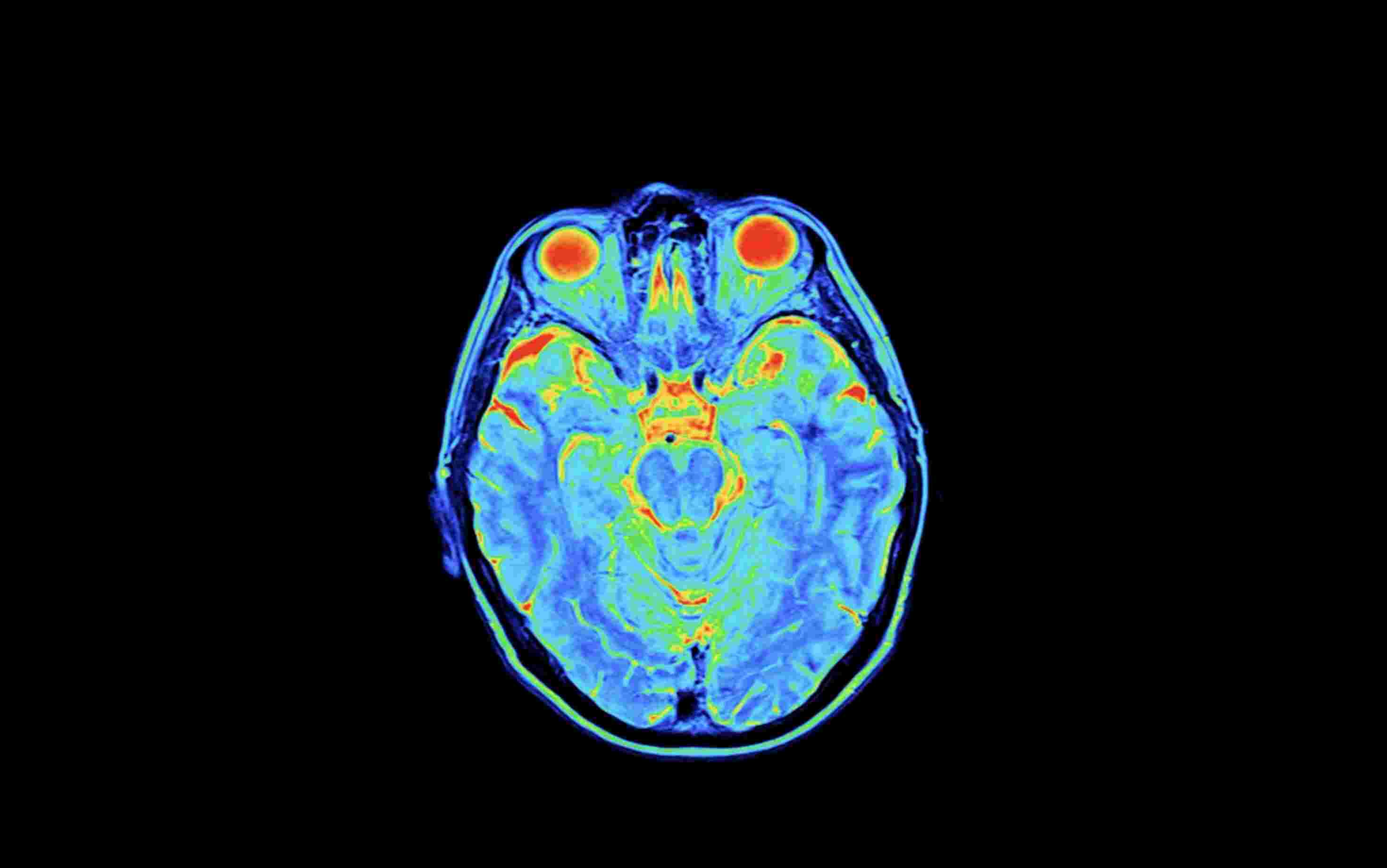
What's the point of music ? You might be tempted to say that it's an enjoyable pastime or an art form, but nothing really essential. For the first time, a documentary shows the opposite. Music is a biological necessity for human beings: it helps to b...
What's the point of music ? You might be tempted to say that it's an enjoyable pastime or an art form, but nothing really essential. For the first time, a documentary shows the opposite. Music is a biological necessity for human beings: it helps to build our brains. In recent years, the discoveries of international neuroscience researchers have revolutionised our understanding of the impact of music on our brains. This film is a behavioural and neurological investigation whose ambition is to unveil the mystery of the powers of music in our lives. OFFICIEL : Why is music vital to our brain? Through an international scientific and neurological investigation, this film will unveil the mystery of music’s multiple powers in our lives. Learning, growing up, loving, overcoming amnesia, anxiety and pain, and much more...at every stage of our lives, how does music play a decisive role in our development?
Difficulty: ★☆☆
Trailer
School : reservation
Music's superpowers
Difficulté : ★☆☆
10 : 30
53 min
School - All ages
FR

Scenarist : Jacques Mitsch & Laurent Mizrahi & Alexandra Martinez
Producer : Loren Richardot
Realisator : Jacques Mitsch
Production house : Compagnie des Phares et Balises, ARTE France
Production year : 2022
Trailer
School : reservation
Genius plants
Projection School - All ages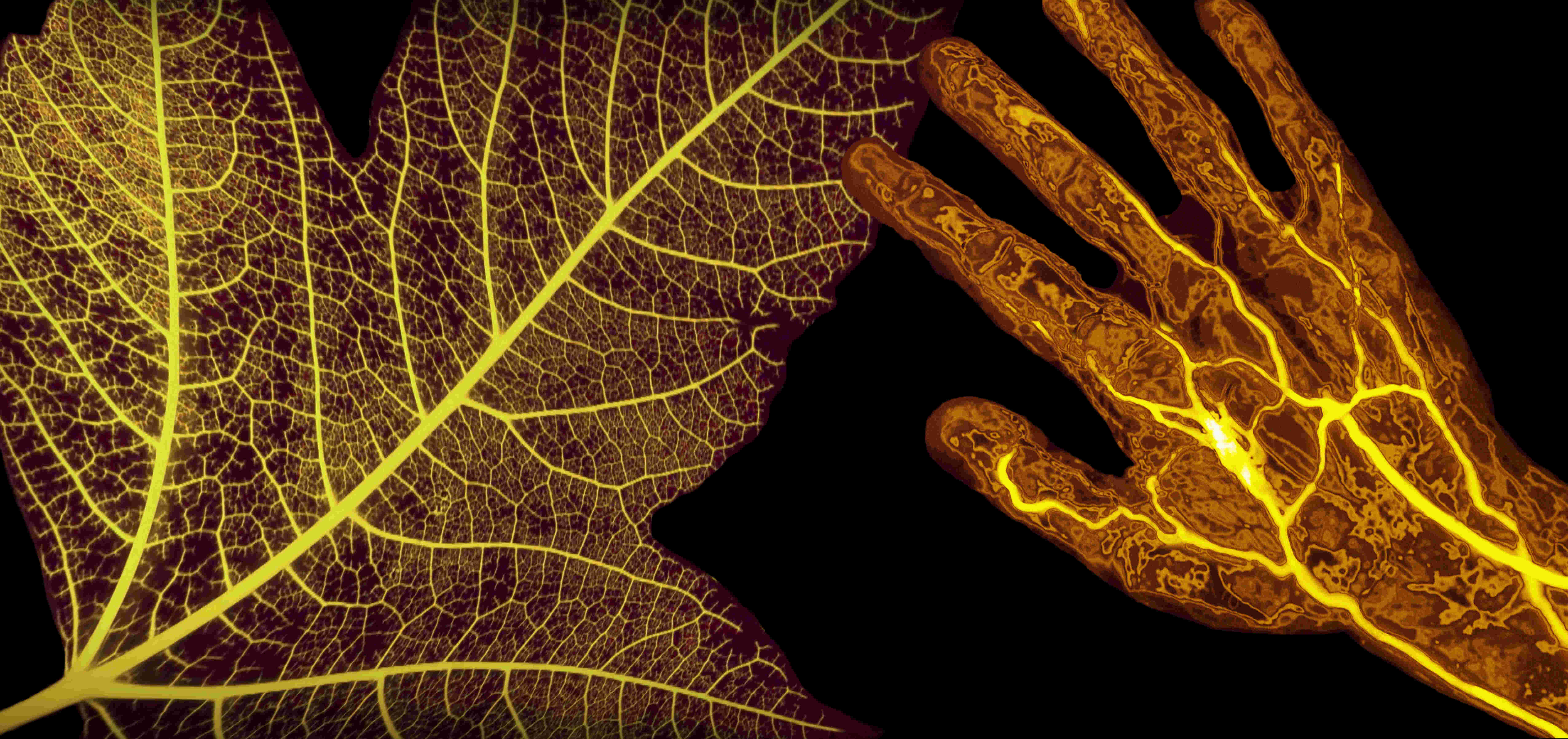
Nowadays, scientists are still trying to understand intelligence in animals. Nevertheless, they all agree that it does exist. So what about plants ? Is it possible that the green inhabitants of our planet are a lot smarter than we thought ? From the ...
Nowadays, scientists are still trying to understand intelligence in animals. Nevertheless, they all agree that it does exist. So what about plants ? Is it possible that the green inhabitants of our planet are a lot smarter than we thought ? From the incredible machinery that enables them to catapult pollen, transpire tannin and release flammable gases, to their complex vascular systems, this film reveals the inner workings of flowers and trees. Exclusive patented technology (electron and optical microscopy), macro photography, high-speed capture and timelapses plunge us into their mysterious world, alongside scientists and experts who share their daring, cutting-edge experiments. This is a revolutionary look at plants, from their point of view, to understand their logic of survival, adaptation and evolution - as they continue to fulfil their essential role on our planet.
Difficulty: ★☆☆
School : reservation
Genius plants
Difficulté : ★☆☆
14 : 00
52 min
School - All ages
FR

Realisator : Thierry Berrod & Quincy Russell
Production house : Mona Lisa Production pour ARTE France
Production year : 2023
School : reservation
Natural disasters, the great regulators
Projection All ages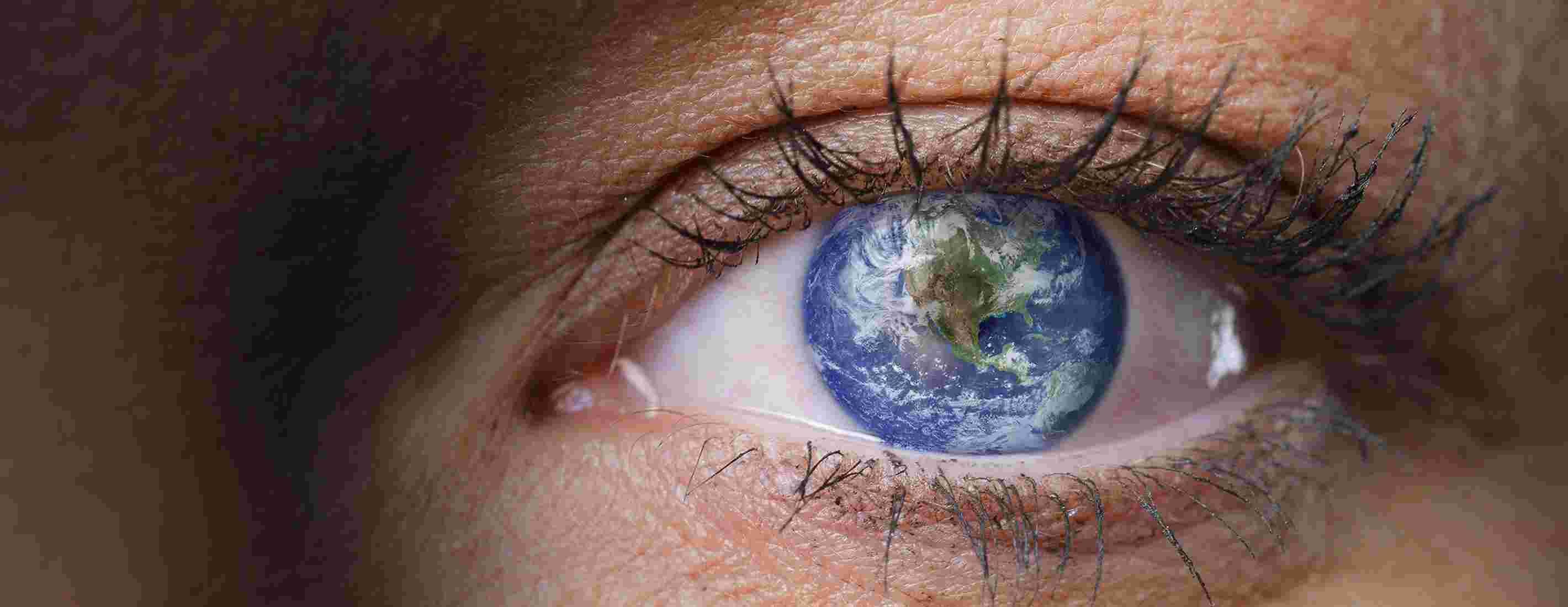
Volcanic eruptions, earthquakes, tidal waves, hurricanes... Our planet is shaken by cataclysms that disrupt the environment and the living world. As each crisis passes, the damage inflicted on us by these violent events increases in number and severi...
Volcanic eruptions, earthquakes, tidal waves, hurricanes... Our planet is shaken by cataclysms that disrupt the environment and the living world. As each crisis passes, the damage inflicted on us by these violent events increases in number and severity. In recent years, science has made dazzling progress, and recent discoveries have given us a new perspective on the Earth. For a long time, each cataclysm was considered to be an isolated phenomenon, the result of chance. Now scientists are discovering that there are links between these extreme events. They are demonstrating that the eruption of a volcano has an impact on the oceans, that typhoons are likely to cause earthquakes, and that melting ice is likely to reawaken volcanoes. Whenever the balance of the globe threatens to break, disasters act in relation to each other, like regulators. They are dangerous for mankind, but they also express the life of the Earth, its breathing, its palpitations, its heartbeats. By penetrating their fascinating complexity, this film takes us into the intimacy of our blue planet.
Difficulty: ★☆☆
Trailer
Natural disasters, the great regulators
Difficulté : ★☆☆
19 : 00
52 min
All ages
FRstEN

Scenarist : Christine Tournadre, Estelle Raffin, Bernard Mathieu
Realisator : Christine Tournadre
Production house : Cocotteminute Productions
Production year : 2022
Trailer
Intervention
Glaciologist at the ULB Glaciology Laboratory
19 : 55
Frank Pattyn is a glaciologist at the ULB Glaciology Laboratory. His research focuses on improving projections of the contribution of ice caps (particularly the Antarctic) to future sea level rise. He has develo...
Frank Pattyn is a glaciologist at the ULB Glaciology Laboratory. His research focuses on improving projections of the contribution of ice caps (particularly the Antarctic) to future sea level rise. He has developed a number of models capable of simulating the behaviour of glaciers and ice caps. He has taken part in several expeditions to Antarctica to study the interaction of glaciers with subglacial water and the ocean. He is currently Chairman of the Belgian National Committee for Antarctic Research.
Intervention
19 : 55

Observations at 65° South
Projection All ages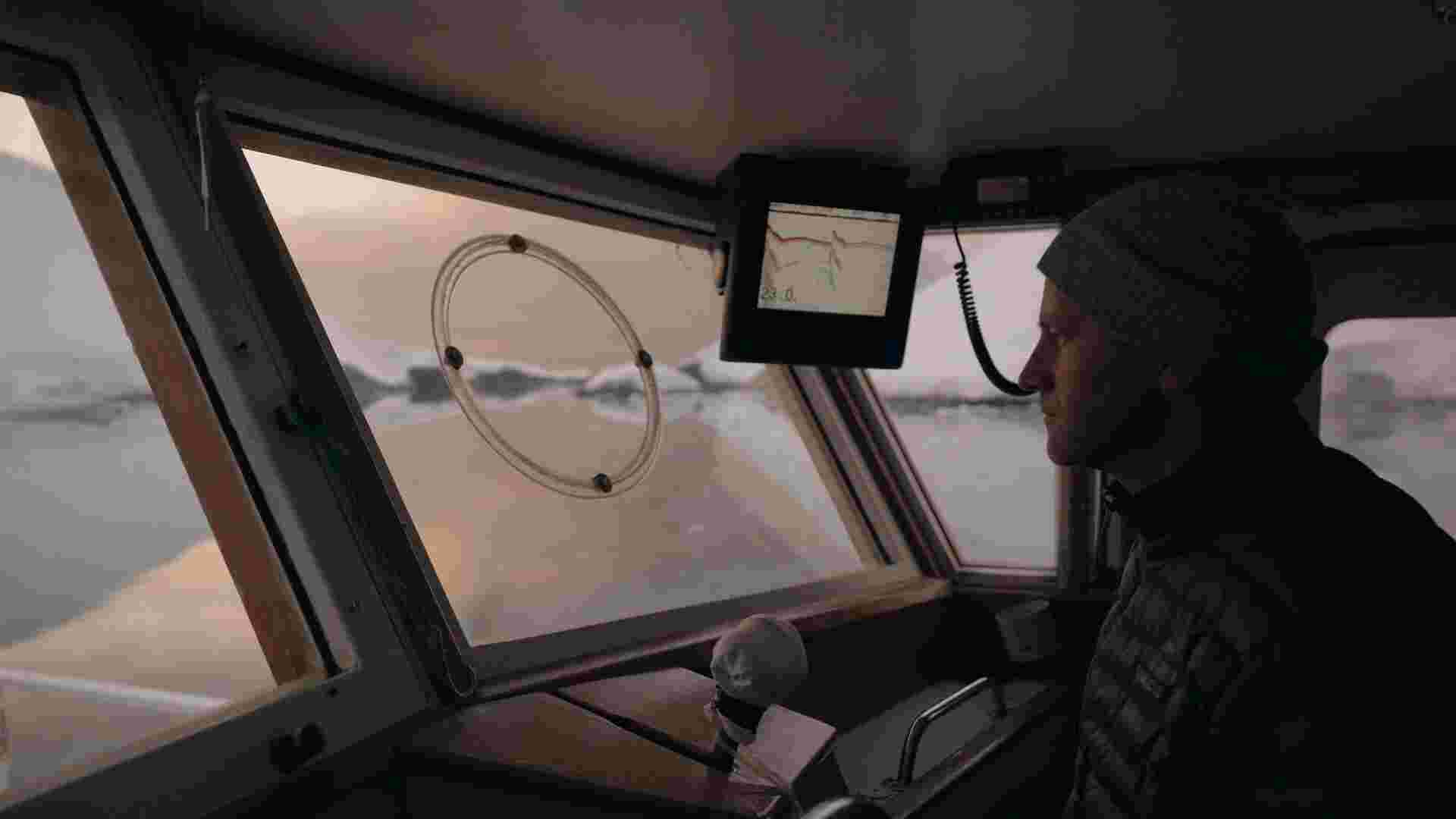
A team of nine scientists embark on a journey to Antarctica. Their choice of transport: a small sailboat. This story is an intimately human account of what it means to live and work alongside one another under relentless conditions, set within the wi...
A team of nine scientists embark on a journey to Antarctica. Their choice of transport: a small sailboat. This story is an intimately human account of what it means to live and work alongside one another under relentless conditions, set within the wider context of rapidly advancing global change, impending habitat destruction and the current zeitgeist of environmentalism.
Difficulty: ★☆☆
Trailer
Observations at 65° South
Difficulté : ★☆☆
21 : 00
52 min
All ages
ENstFR

Scenarist : Lilian Hess
Producer : Lilian Hess & Franz Maximilian Heindler
Realisator : Lilian Hess
Production house : Espresso Media
Production year : 2021
Trailer
Intervention
Director of ULB's Marine Biology Laboratory
21 : 55
Bruno Danis is a Full Professor, and Head at the Marine Biology Lab, Université Libre de Bruxelles (ULB) . He received his PhD from the ULB in 2004, and then joined the ANDEEP3 expedition to the Southern Ocean ...
Bruno Danis is a Full Professor, and Head at the Marine Biology Lab, Université Libre de Bruxelles (ULB) . He received his PhD from the ULB in 2004, and then joined the ANDEEP3 expedition to the Southern Ocean onboard the RV Polarstern, before taking the lead of two projects aiming at offering free and open access on Antarctic biodiversity for science, conservation and management purposes (SCAR-MarBIN and ANTABIF). He led a pioneering expedition to the Western Antarctic Peninsula (Belgica121) to test the concept of using a low-environmental impact platform to carry out marine biodiversity census in the Southern Ocean. More recently, he led the TANGO1 expedition to the same region. He has recently taken the co-direction of a research station in Belaza, Madagascar, with U. Toliara, U. Mons and U. Liège. His research focuses on biodiversity/biogeography, ecotoxicology, numerical ecology and biodiversity informatics, and he thrives to channel these efforts for conservation purposes, with a special attention devoted to Open Science.
Intervention
21 : 55

The monuments' wildlife - The resistants
Projection Family - All ages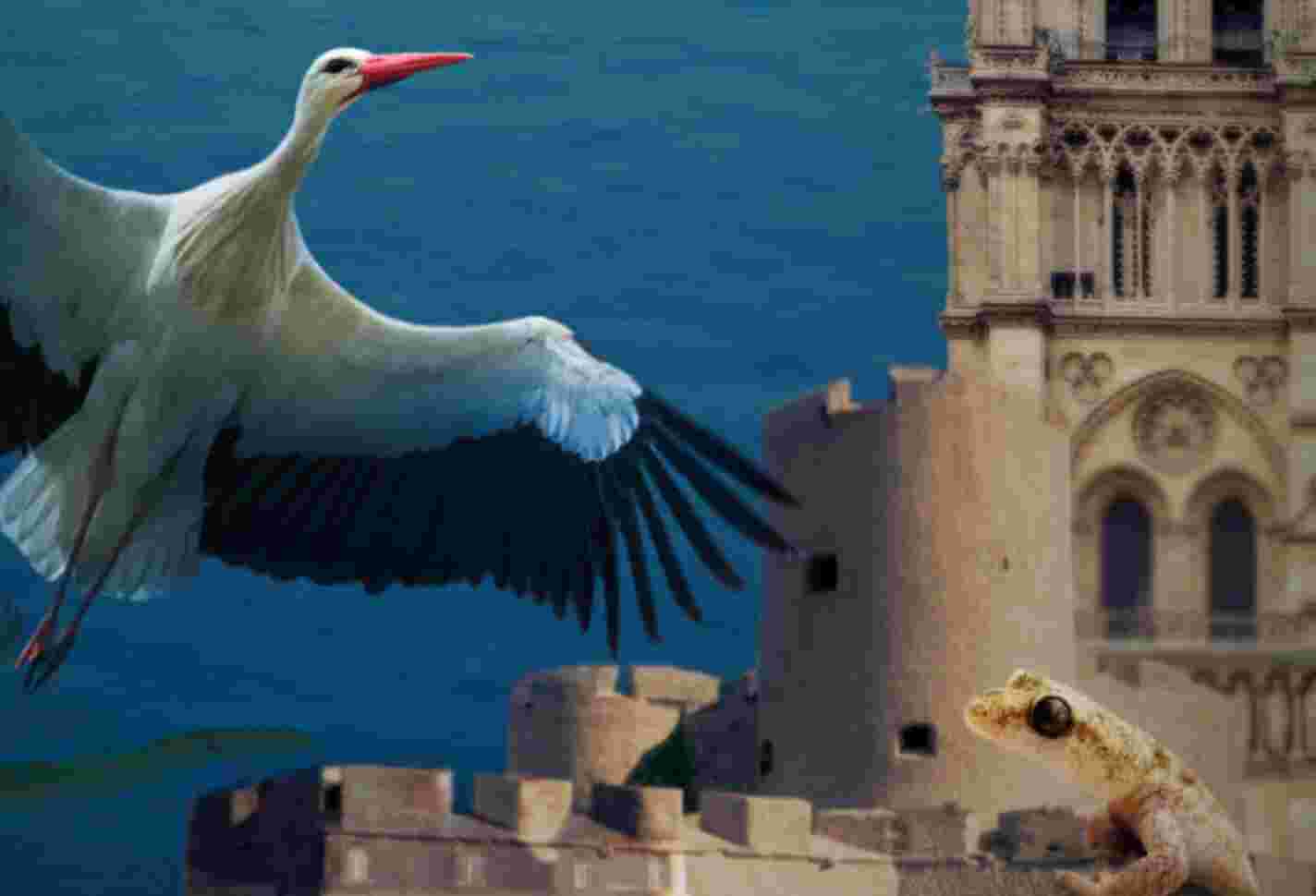
All across France, sumptuous historic monuments are the last refuges of a rare and threatened biodiversity. Falcons driven from Notre-Dame by the fire of April 2019, the last Roman snails hidden in the arenas of Nîmes, warrior eels in the fortress o...
All across France, sumptuous historic monuments are the last refuges of a rare and threatened biodiversity. Falcons driven from Notre-Dame by the fire of April 2019, the last Roman snails hidden in the arenas of Nîmes, warrior eels in the fortress of Fougères, storks seeking shelter in the château d'Haroué or surviving geckos in the château d'If: fragile wildlife continues to resist, thanks to the action of committed men and women. How do you reconcile the protection of cultural and natural heritage ? This is the challenge that ecologists, biologists and conservation specialists are taking up.
Difficulty: ★☆☆
The monuments' wildlife - The resistants
Difficulté : ★☆☆
14 : 00
61 min
Family - All ages
FRstEN

Scenarist : Pascal Cardeilhac
Producer : Caroline Broussaud, Alexis Monge
Realisator : Pascal Cardeilhac
Production house : France.tv Studio, France Télévisions, CNC
Production year : 2022
Intervention
PhD in biology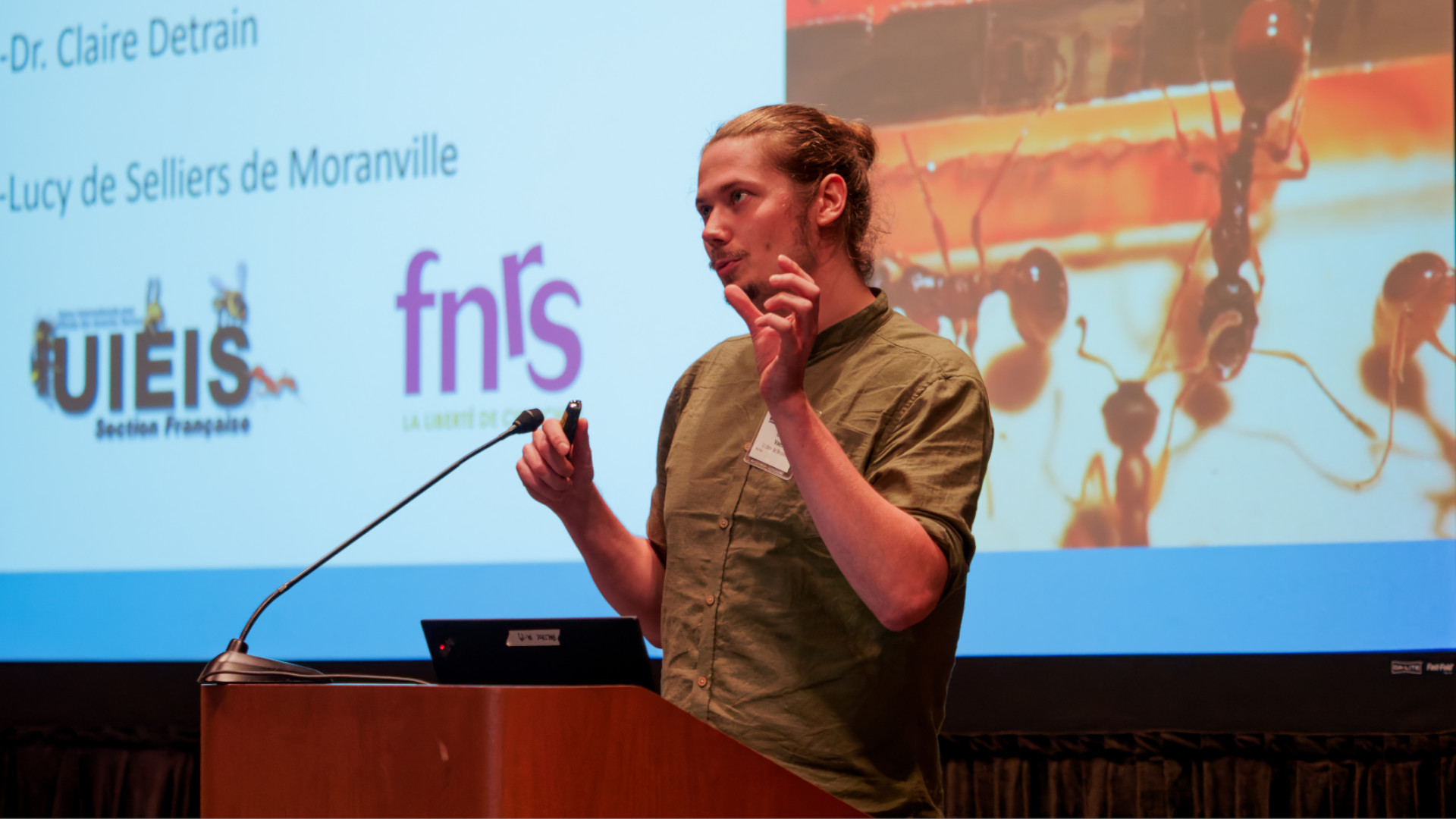
15 : 00
My name is Oscar Vaes and I'm a Doctor of Science (ULB). My interest in life sciences led me to study biology at the Université Libre de Bruxelles. During my master's degree, I developed a particular interest in ants and their complex societies. In ...
My name is Oscar Vaes and I'm a Doctor of Science (ULB). My interest in life sciences led me to study biology at the Université Libre de Bruxelles. During my master's degree, I developed a particular interest in ants and their complex societies. In 2018 I started a PhD at the Unit of Social Ecology, which focused on the study of activity levels in ant societies. More specifically, I studied inactive individuals, whose presence in large numbers in colonies still constitutes an evolutionary enigma
Intervention
15 : 00

Butterfly Blueprint
Projection Family - All ages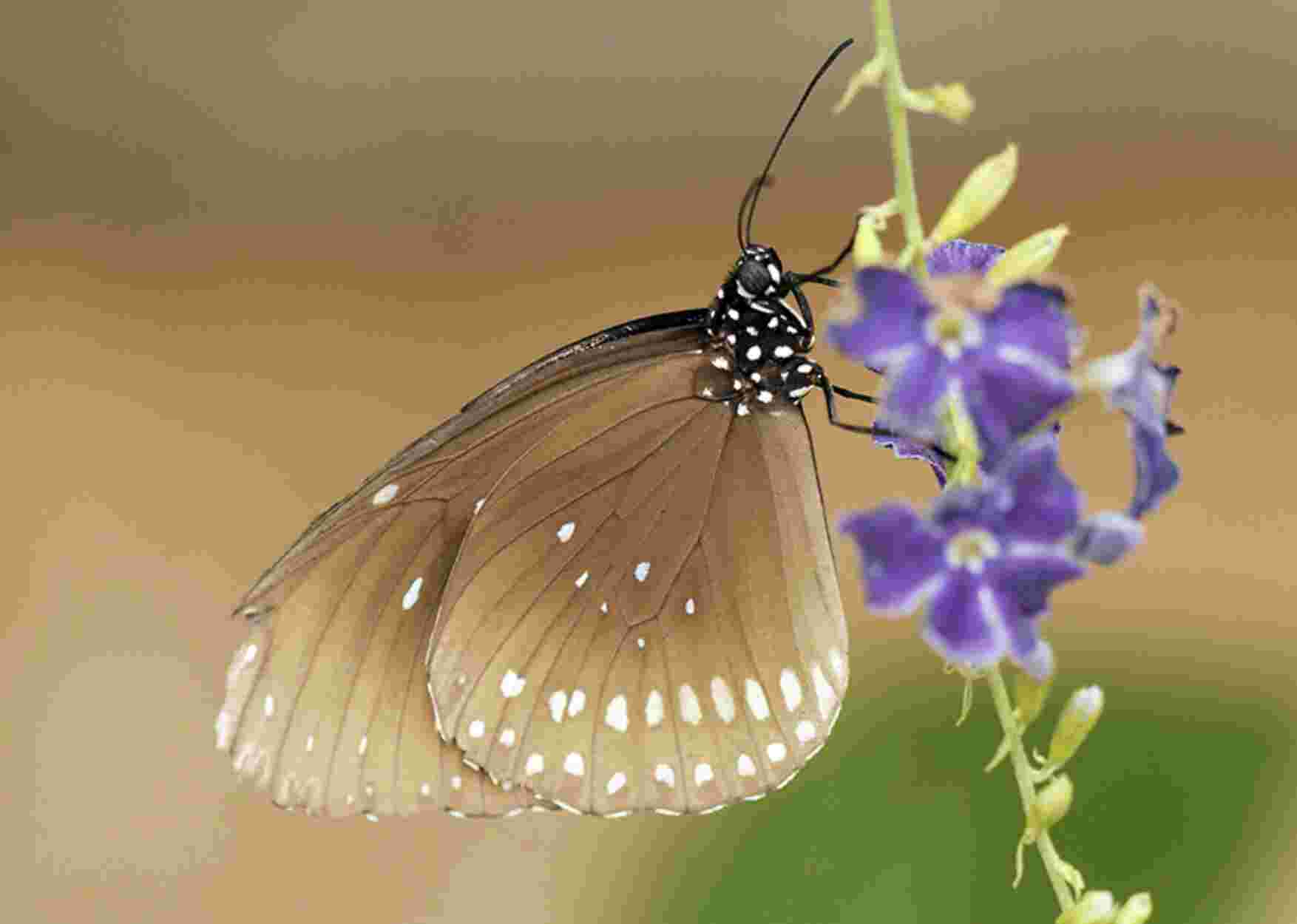
Jury's PrizeIn times of beautiful weather flutter across our skies light-winged insects producing unsuspected effects : the butterflies. Born at the tim...
Jury's PrizeIn times of beautiful weather flutter across our skies light-winged insects producing unsuspected effects : the butterflies. Born at the time of the dinosaurs, they have evolved over millions of years, inventing a multitude of adaptation strategies. Their extravagant finery hides treasures of life, visible under the most powerful microscopes. A dive into the infinitely small : from their wings to their antennae, the iconic blue Morpho, the industrious Bombyx Mori, the almost transparent Greta Oto, the highly migratory Monarch and many other species, inspire researchers observing them to make discoveries in fields as varied as energy, sustainable development, surgery and even military defence ! Delicate and majestic, champions of survival, butterflies inspire the technologies of the future. They also whisper a message - to preserve the world, in harmony with the intelligence of all living things.
Difficulty: ★☆☆
Trailer
Butterfly Blueprint
Difficulté : ★☆☆
16 : 00
52 min
Family - All ages
FRstEN

Scenarist : Marie Blanc-Hermeline, Pierre Bressiant, Arnaud Devroute & Maxence Lamoureux
Producer : Serge Guez
Realisator : Pierre Bressiant
Production house : CRESCENDO
Production year : 2021
Trailer
Intervention
Molecular Biologist
16 : 55
Professor at ULB since October 2020, I carry out my research in the laboratory Evolutionary Biology and Ecology, in the Department of Organismal Biology (DBO). My previous career: - Lecturer at ULB, between October 2015 and September 2020, in the De...
Professor at ULB since October 2020, I carry out my research in the laboratory Evolutionary Biology and Ecology, in the Department of Organismal Biology (DBO). My previous career: - Lecturer at ULB, between October 2015 and September 2020, in the Department of Biological Evolution and Ecology (DBO). - Research Associate at the F.R.S.-FNRS between October 2001 and September 2015, at ULB, first in the Laboratory of Evolutionary Genetics (Department of Molecular Biology), then in the laboratory Evolutionary Biology and Ecology (DBO). - Postdoctoral Researcher of the F.R.S.-FNRS, between October 1998 and September 2001, in the Laboratory of Evolutionary Genetics (Department of Molecular Biology). - Postdoctoral researcher at the University of Arkansas (USA) from May 1996 to July 1998, in the Molecular Systematics Laboratory. My research focuses on the analysis of genetic variation to study the evolution of organisms. Amon others, I am interested in the evolution of species ranges in response to climatic changes at the end of the Quaternary. I am also interested in the mechanisms of speciation, which are at the origin of biodiversity, at the genomic level. My research team takes advantage of recent technical advances in DNA sequencing to explore genetic variation across the entire genome of organisms. I contribute to the teaching of several courses at the Bachelor (General Biology, BIOL-F-102; Mechanisms of Biological Evolution, BIOL-F-308; Science and Society: Analysis of Scientific Controversies, ETHI-F-301) and Master (Evolution and Ecology, BIOL-F-450) levels. I was awarded the Socrate pedagogy Prize (ULB) in 2020 for my teaching.
Intervention
16 : 55

Fungi, web of life
Projection All ages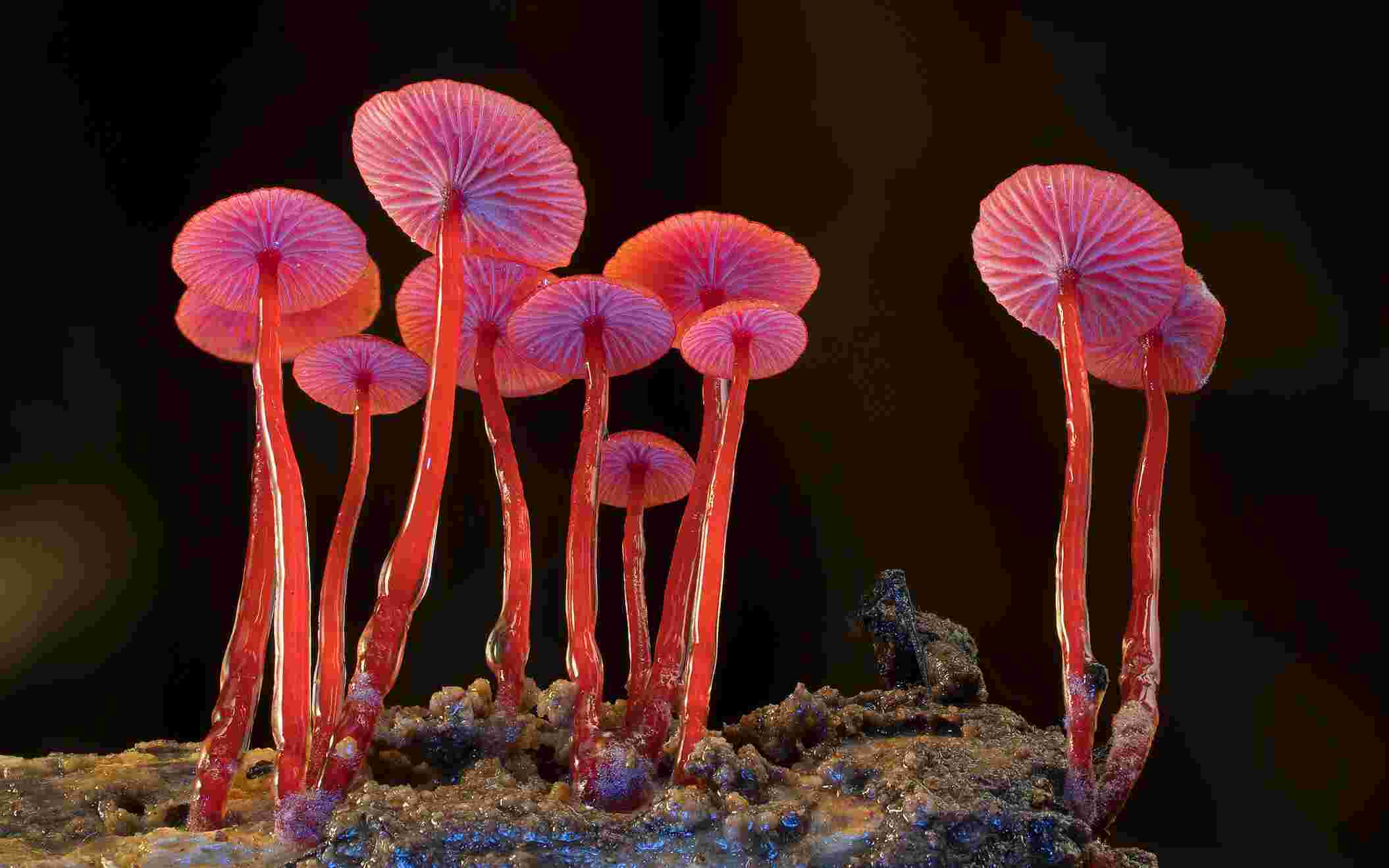
All life on Earth is connected by a great mystery we are only just beginning to unravel. Hidden between the world of plants and animals, another world exists…Fungi: Web of Life. We’ll begin in the mysterious world of the forest floor, where fungi...
All life on Earth is connected by a great mystery we are only just beginning to unravel. Hidden between the world of plants and animals, another world exists…Fungi: Web of Life. We’ll begin in the mysterious world of the forest floor, where fungi are the central players in nature’s story of birth, death, and rebirth to discover that life as we know it simply would not exist without them. Join acclaimed British biologist, Dr. Merlin Sheldrake, on a quest to find an incredibly precious blue mushroom, against the backdrop of Tasmania’s ancient Tarkine rainforest. Merlin will show us some the grandest and strangest organisms ever discovered, showcased through jaw-dropping time-lapse cinematography, in a landscape largely unchanged from the time of the dinosaurs. Fungi have important lessons to teach humanity about survival through cooperation. Indeed, these incredible lifeforms may hold the key to solving some of humanity’s most urgent problems. With millions more species to discover, our journey into the secret world of fungi has only just begun.
Difficulty: ★☆☆
Trailer
Fungi, web of life
Difficulté : ★☆☆
19 : 00
41 min
All ages
ENstFR

Producer : David Gross, Jennifer Peedom, Jo-Anne McGowan, Sarah Noonan
Realisator : Gisela Kaufmann, Joseph Nizeti
Production house : K2 Studios
Production year : 2023
Trailer
Intervention
Research Fellow at the Royal Botanic Gardens, Kew
19 : 45
Guillaume Delhaye is PhD in Organismal Biology (ULB). He is currently a Research Fellow at the Royal Botanic Gardens, Kew in London, where he is working on mycorrhizal fungal communities in European forests, foc...
Guillaume Delhaye is PhD in Organismal Biology (ULB). He is currently a Research Fellow at the Royal Botanic Gardens, Kew in London, where he is working on mycorrhizal fungal communities in European forests, focusing on their response to climate change and pollution.
Intervention
19 : 45

The Znamya Project
Projection All ages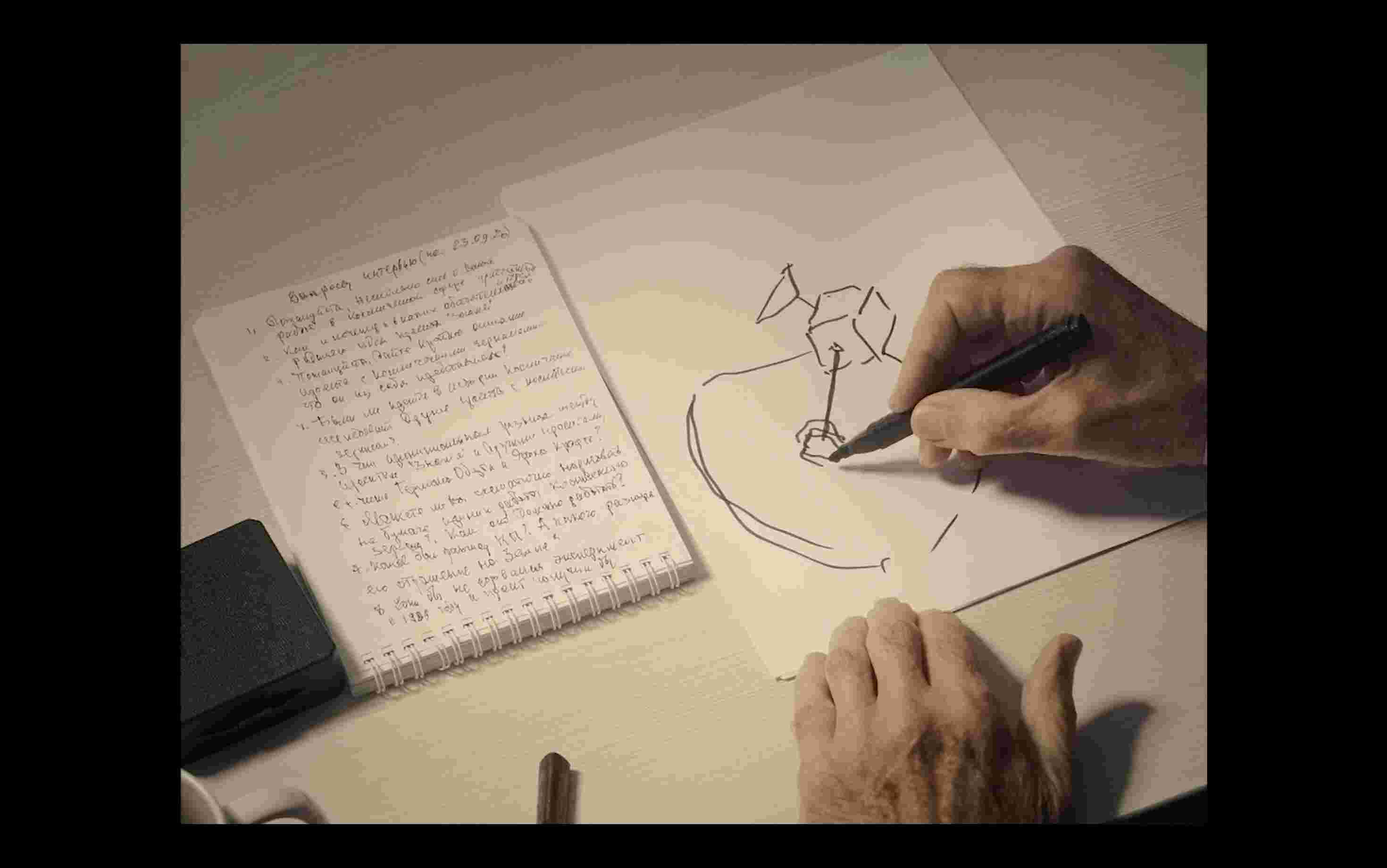
In February 1993, a group of Russian engineers succeeded in launching a giant mirror capable of illuminating the Earth at night into space. Against all expectations, the experiment worked. Part scientific prophecy, part philosophical tale, the Znamya...
In February 1993, a group of Russian engineers succeeded in launching a giant mirror capable of illuminating the Earth at night into space. Against all expectations, the experiment worked. Part scientific prophecy, part philosophical tale, the Znamya project takes us into the strange labyrinth of a possible nightless future.
Difficulty: ★☆☆
Trailer
The Znamya Project
Difficulté : ★☆☆
20 : 30
40 min
All ages
ENstFR

Producer : Eric Dufour
Realisator : Nicolas Autheman
Production house : MINIMUM MODERNE, France THM Productions
Production year : 2022
Trailer
Intervention
Realisator
21 : 10
Nicolas Autheman is a French author and director born in Paris in 1982. After studying political science in France, he made his first feature documentary in 2011 dedicated to pilgrims lost during religious festi...
Nicolas Autheman is a French author and director born in Paris in 1982. After studying political science in France, he made his first feature documentary in 2011 dedicated to pilgrims lost during religious festivals in India (The lost people of the Ganges ). Since then, he has directed both portraits of writers (The Europe of Writers) and films devoted to the history of art (The World in a Painting), mainly for Arte. At the same time, he creates audiovisual installations for temporary exhibitions and museums (Mucem, Grand Palais, etc.). The Znamya Project is his first creative documentary medium-length film.
Intervention
21 : 10

The Manifesto of l'Arcouest
Projection All ages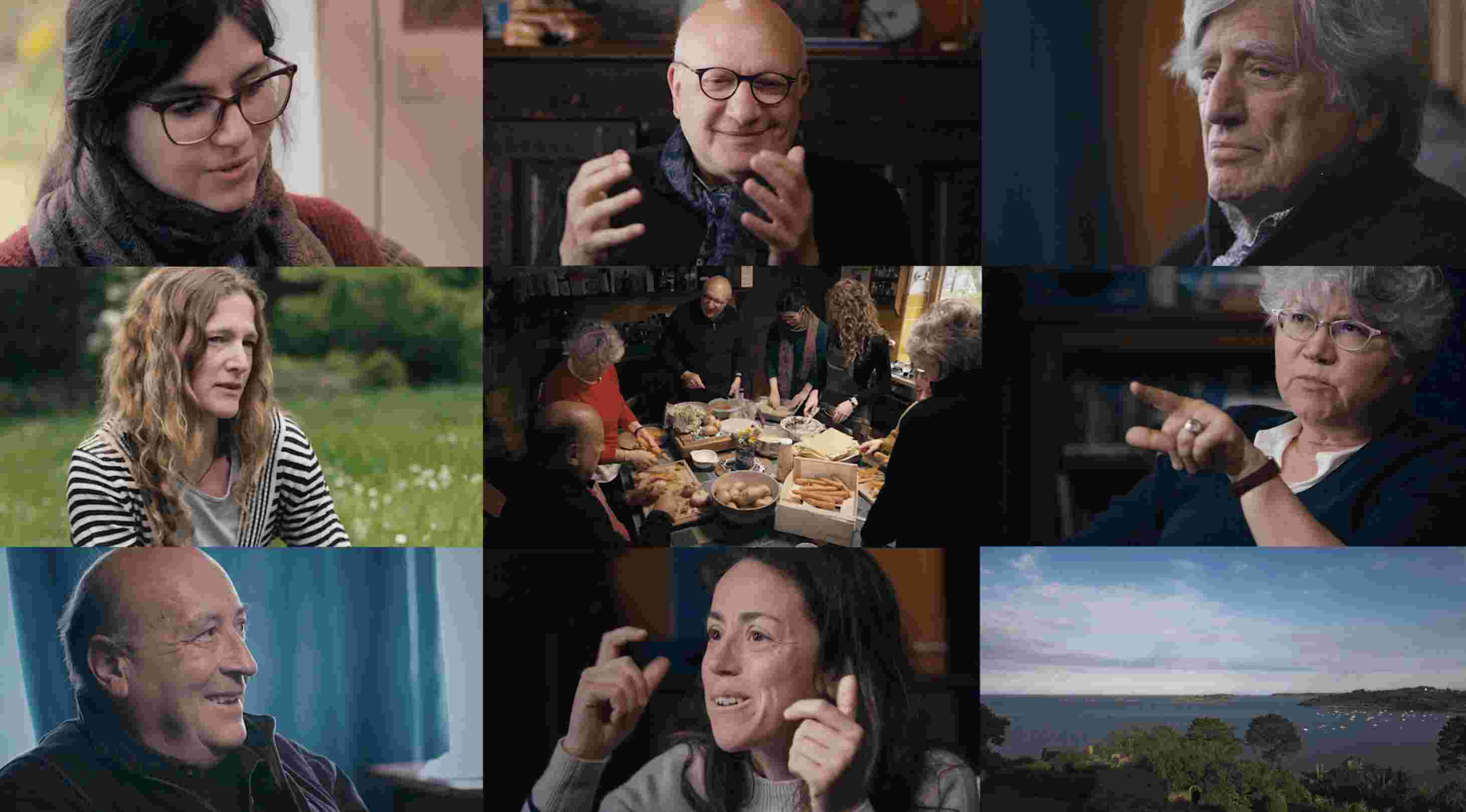
In Brittany, in the Côtes d'Armor department, the Arcouest peninsula is home to a group of houses where several generations of politically engaged scientists lived. "Sorbonne Plage" was a place of leisure and rejuvenation for Marie Curie, Jean Perri...
In Brittany, in the Côtes d'Armor department, the Arcouest peninsula is home to a group of houses where several generations of politically engaged scientists lived. "Sorbonne Plage" was a place of leisure and rejuvenation for Marie Curie, Jean Perrin, Paul Langevin and Frédéric and Irène Joliot-Curie, who, among other things, made possible the discovery of nuclear fission, and formed a community of utopian scientists who fought for peace, freedom, social justice and human progress. Today, as a terrible pandemic ravages the world, a small group of equally engaged researchers have decided to meet on this same historic site, in these same houses, to reflect on their responsibilities and their actions in the face of accelerating global warming, the collapse of biodiversity and the risks of uncontrolled techno-sciences... with, out of urgency, the slightly crazy idea of producing a manifesto.
Difficulty: ★☆☆
Trailer
The Manifesto of l'Arcouest
Difficulté : ★☆☆
22 : 00
52 min
All ages
FRstEN

Scenarist : Jean-Marie Boulet, Philippe Worms & Pierre-Henri Gouyon
Producer : Vincent Gaullier
Realisator : Jean-Marie Boulet, Philippe Worms
Production house : Look at Sciences
Production year : 2021
Trailer
Super Moss
Projection Family - All Ages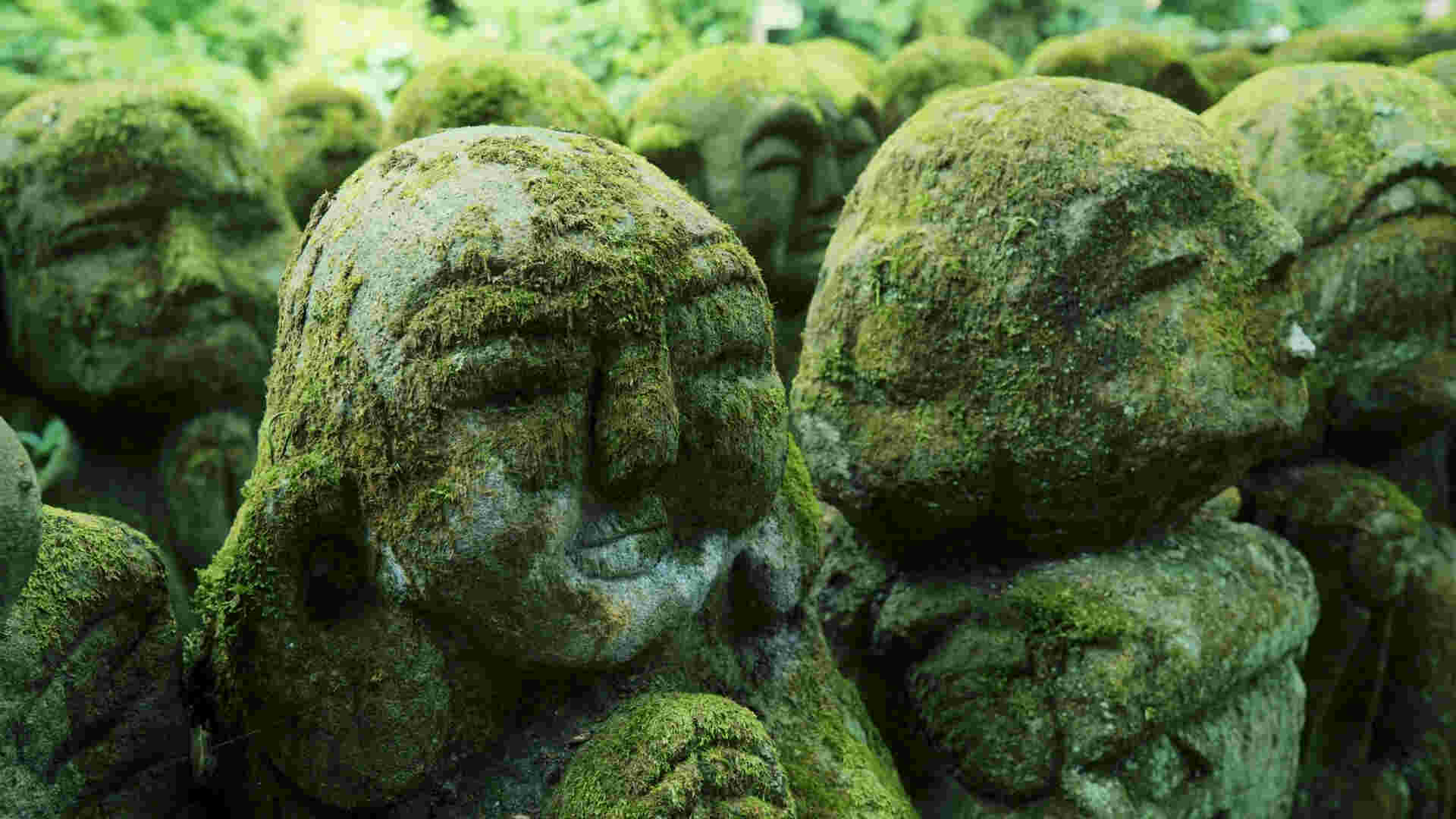
They have survived climatic tragedies and nuclear contamination thanks to their extraordinary biological characteristics : mosses, or bryophytes, have been conquering the planet for millennia. Recent discoveries have shocked the scientific community ...
They have survived climatic tragedies and nuclear contamination thanks to their extraordinary biological characteristics : mosses, or bryophytes, have been conquering the planet for millennia. Recent discoveries have shocked the scientific community : Sa Majesté les Mousses invites us to discover them through the history of this extraordinary organism, on a journey from the infinitely small to the infinitely large.
Difficulty: ★☆☆
Trailer
Super Moss
Difficulté : ★☆☆
14 : 00
60 min
Family - All Ages
FRstEN

Realisator : Jean-Philippe Teyssier & Bruno Victor-Pujebet
Production house : Zadig Productions
Production year : 2023
Trailer
Intervention

15 : 00
Alain Vanderpoorten is an FNRS research director at the University de Liège. He teaches biogeography at the University and is interested in understanding ecological and evolutionary mechanisms of bryophyte dist...
Alain Vanderpoorten is an FNRS research director at the University de Liège. He teaches biogeography at the University and is interested in understanding ecological and evolutionary mechanisms of bryophyte distribution and dispersal in a changing environment.
His work began with a study of the bioindication capacity of the water quality by bryophytes at the Faculté d'Agriculture de Gembloux (Belgium), followed by a post-doc at Duke University (NC, USA) with A.J. Shaw. Since 2003, he has been a FNRS associate researcher at the Institut de Botanique de l'Université de Liège (Belgium), where he has developed a laboratory and a team focusing on the ecological and historical biogeography of bryophytes, using a wide range of approaches including ecological modelling, molecular phylogeny and population genetics.
Sophie Pittoors is a biologist with a Master's degree in Organismal Biology and Ecology from the University de Liège, where she is currently a scientific collaborator. Since 2012, she has been working at the Observatoire du Monde des Plantes at the University de Liège, where she is responsible for developing projects relating to the conservation of botanical collections and is also a scientific mediator.
Intervention
15 : 00

Thinking outside the tank !
Projection Family - All Ages
Jury's favoriteEveryone has had a Maurice the goldfish at home. His story could just as easily be that of Nemo, Moby Dick, Cleo, Bubbles... all the litt...
Jury's favoriteEveryone has had a Maurice the goldfish at home. His story could just as easily be that of Nemo, Moby Dick, Cleo, Bubbles... all the little nicknames we have given our living room companions. Maurice is the icon of his entire animal family : fishes. For most humans, it's impossible to believe that they have any intelligence whatsoever. But is Maurice really this silly animal, with a memory of no more than three seconds ? And what if we were wrong ? From the abyss to temporary puddles, from streams to waterfalls, fish can be found wherever there's water on the planet... But what do we really know about them? Scientists all over the oceans are devising incredible experiments to test different facets of what we call intelligence in these animals : their cognitive faculties, their modes of organisation, their ability to adapt... and even their emotions ! And the researcher's discoveries are astonishing ! And what if some fish were beings gifted with unsuspected intelligence ? And what if Maurice and his cousins weren't as stupid as we think ?!
Difficulty: ★☆☆
Trailer
Thinking outside the tank !
Difficulté : ★☆☆
16 : 00
52 min
Family - All Ages
FRstEN

Scenarist : Ariane Lamarsaude & Stéphane Jacques
Producer : Claire Dornoy
Realisator : Arianne Lamarsaude & Stéphane Jacques
Production house : Les Films D’ici
Production year : 2022
Trailer
Intervention
Journalist and aquarist
16 : 55
Trained as a journalist, Luc Helen has been raising tadpoles and sticklebacks in old aquariums since primary school. When he was fifteen, he bought himselft his first tropical aquarium. Since then, aquaristics h...
Trained as a journalist, Luc Helen has been raising tadpoles and sticklebacks in old aquariums since primary school. When he was fifteen, he bought himselft his first tropical aquarium. Since then, aquaristics has remained his favourite hobby. He is particularly interested in the ethological study of cichlids from the Great Lakes of Africa. Another project of his is the captive breeding of species endangered in their natural environment, in order to build up a sufficiently large breeding stock to preserve a rich genetic variation. The aim is, if possible, to eventually reintroduce them into their natural environment once it has been restored and protected.
Intervention
16 : 55

Discours de fin et remise des Prix Photo
13th edition of the Festival
17 : 30
As you may already know, the Festival du Film Scientifique de Bruxelles is organising a photo competition again this year. Among the many entries, 13 photos have been selected by the members of the FFSB team. These photos, illustrating different scie...
As you may already know, the Festival du Film Scientifique de Bruxelles is organising a photo competition again this year. Among the many entries, 13 photos have been selected by the members of the FFSB team. These photos, illustrating different scientific themes, each more beautifully than the last, will be exhibited at the festival. A Photo Jury will award the Photo Jury Prize for each of the three categories : - Science as you've never seen it before - The diversity that surrounds us - The actors of science You will also have the opportunity to vote for your favourite photo, to award the Photo Public Prize.
Discours de fin et remise des Prix Photo
17 : 30



